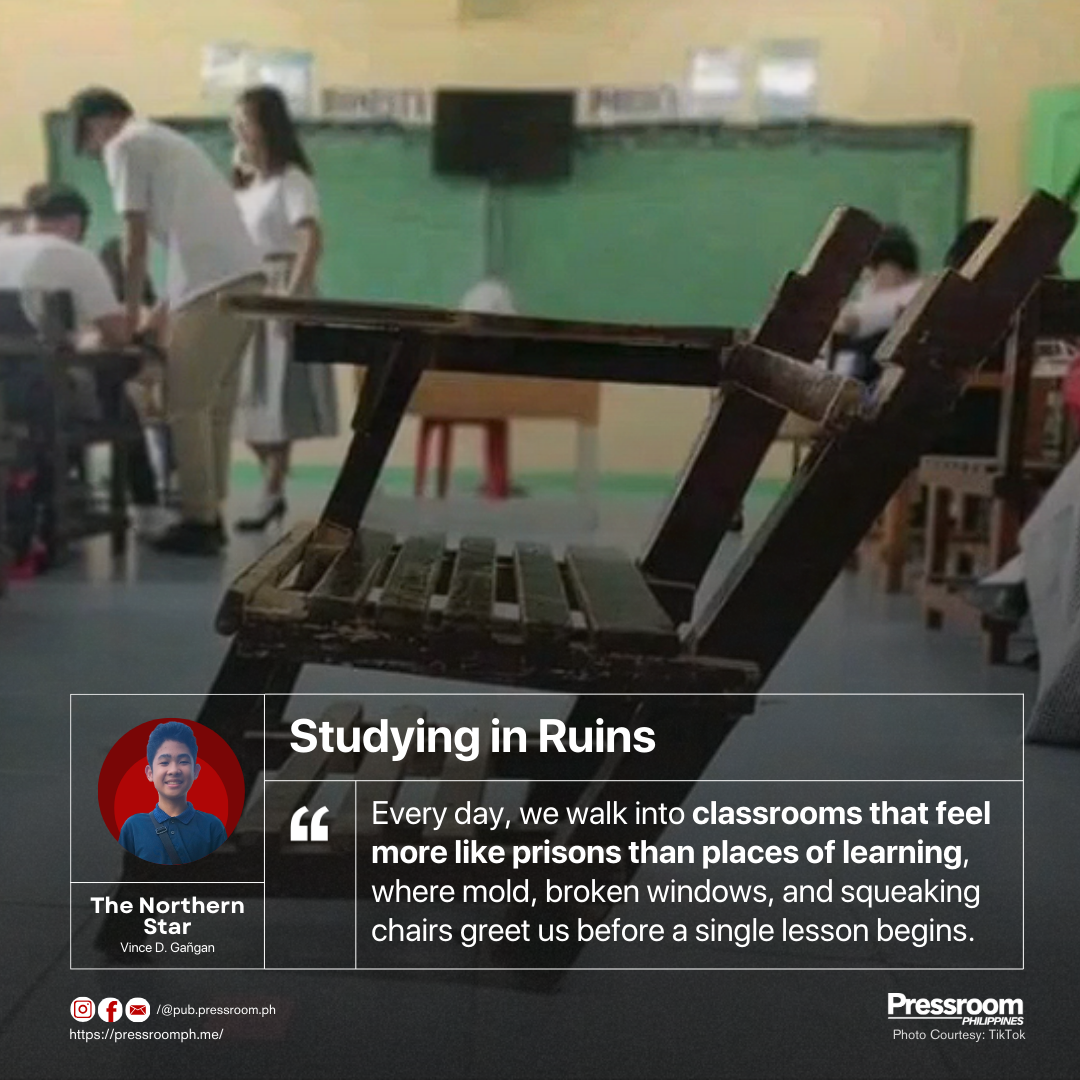
Every time I enter the classroom, ready for another day of learning, a feeling of despair and disappointment always seems to float by. Before I even take a few steps in, a door with no handle blocks my way, the smell of mold fills my lungs, and the broken windows that always let the cold creep in send shivers down my spine.
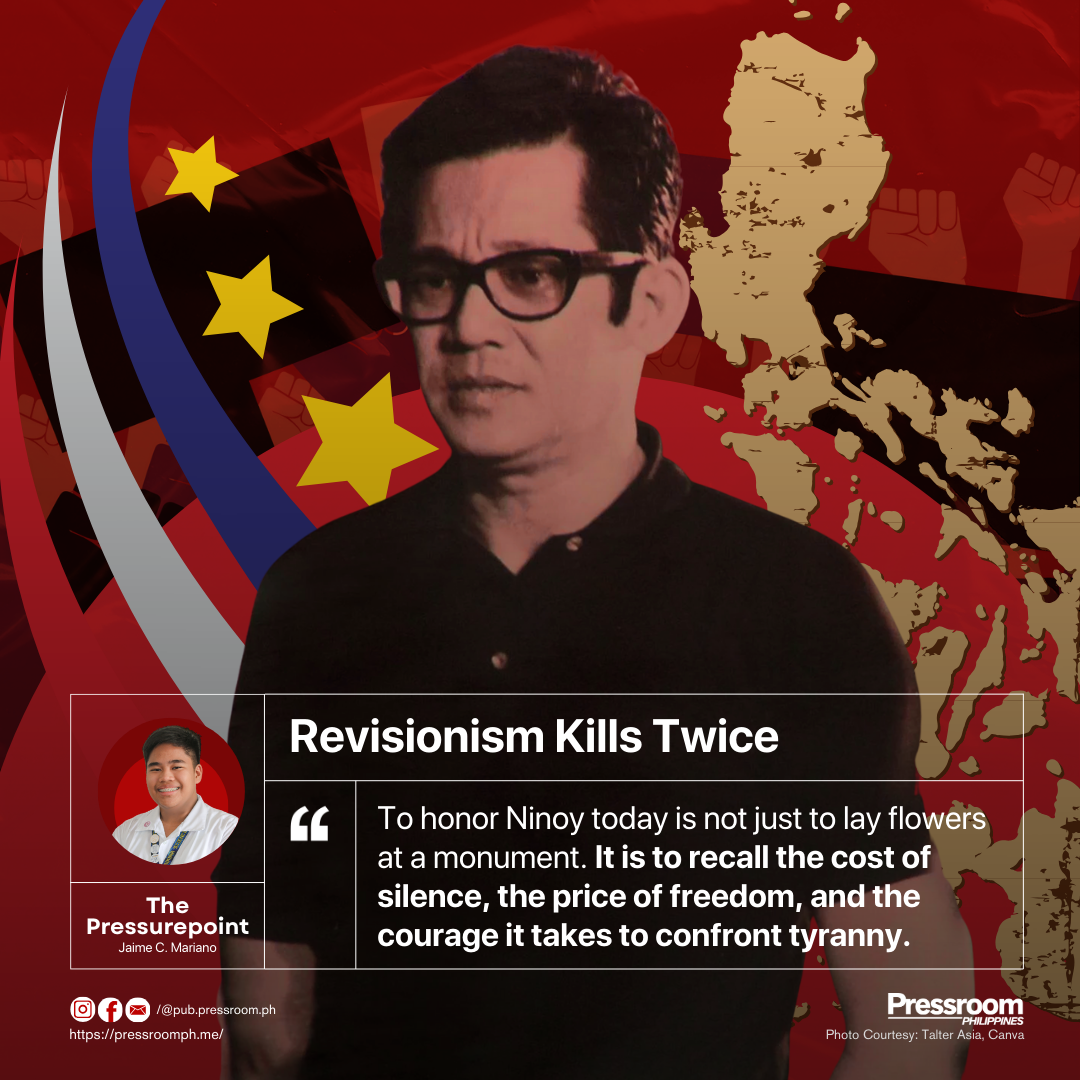
Heroes are not sacred. They are questioned, doubted, and sometimes torn apart by the very people who once revered them. And Ninoy Aquino, whose death on this day seared himself into our national conscience, is no exception.
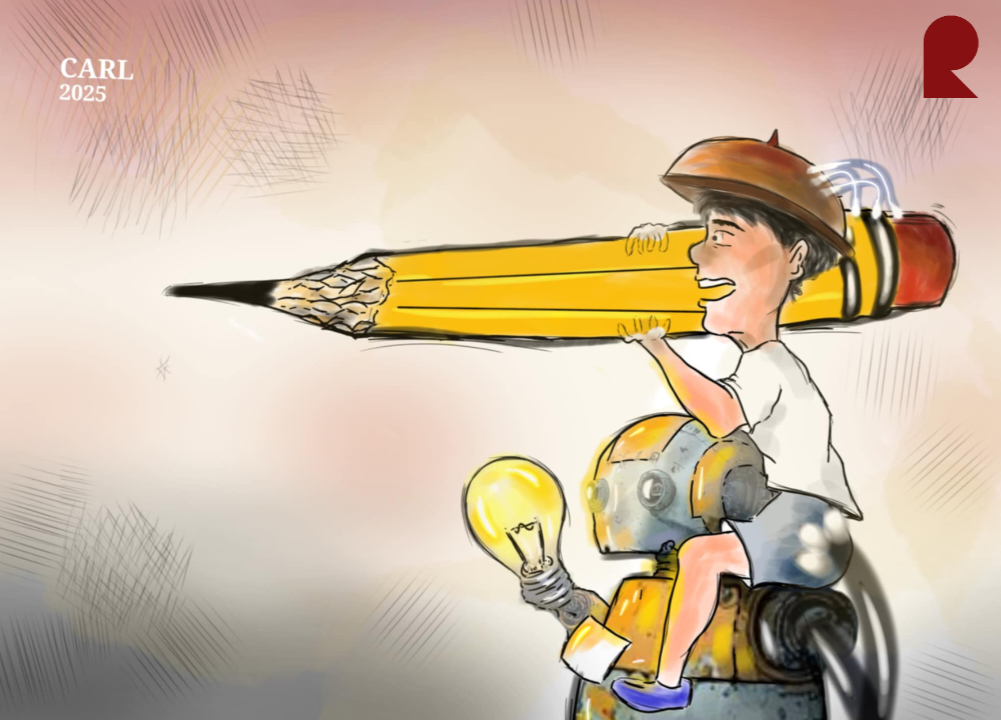
Editorial cartoons once captured genuine emotions, clever wit, and profound insights. Now, AI tools are encroaching—swift, inexpensive, yet devoid of sentiment.
![Pixilated Perspective: Inked by [AI]magination](https://cdn.pressroomph.me/images/articles/b36cae84-e4b2-4583-ade7-2b197a412c1d.png)
Pop groups captivate audiences through visuals and performance; editorial cartoons play a similar role in journalism. It is the main visual of the newspaper. Beyond its ability to capture attention at first glance, it is the only piece in the newspaper that can accurately deliver emotion, nuances, and genuine feelings of rage, anger, confusion, and happiness.
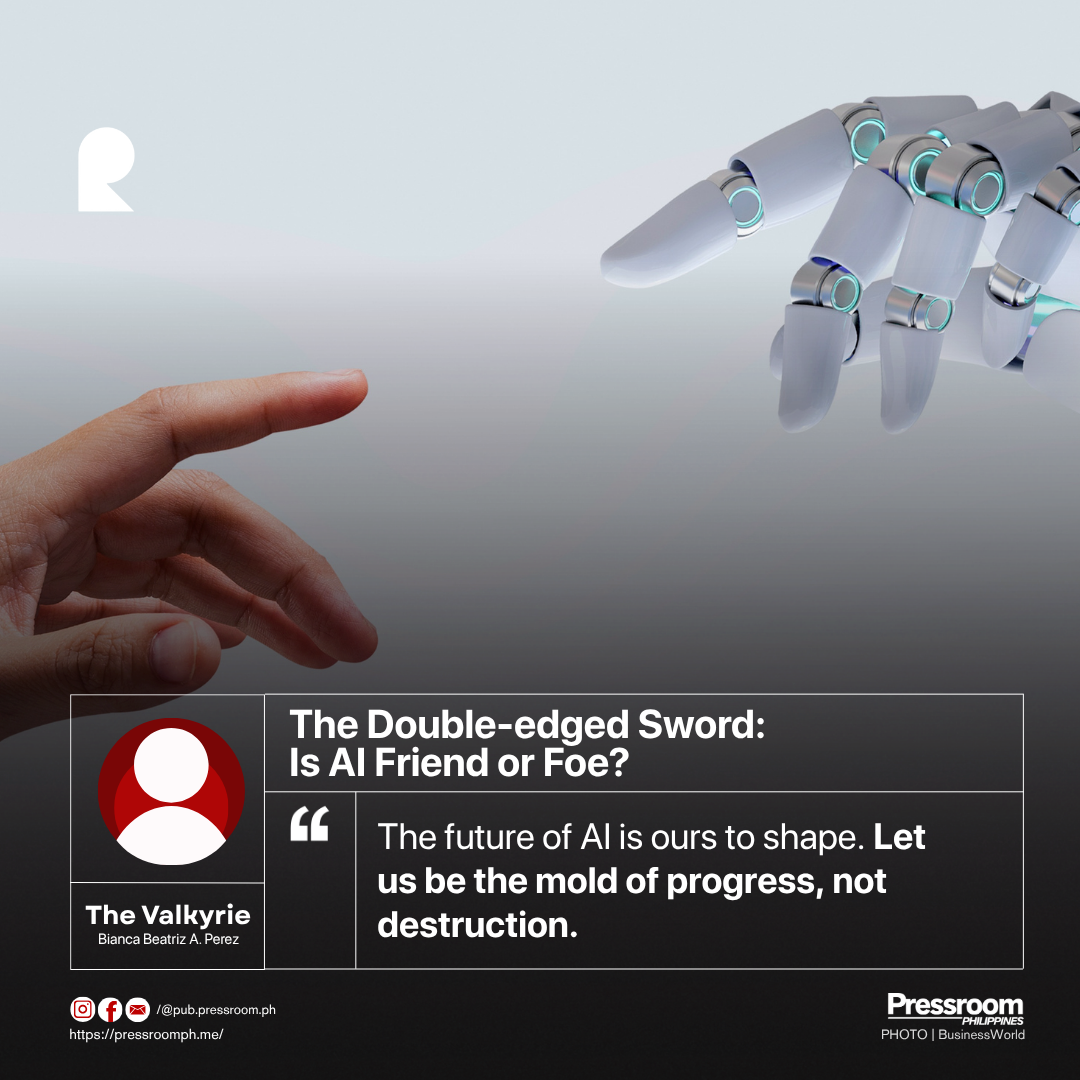
As the world progresses and looms into a modernized and technological slate, the use of Artificial Intelligence or AI has been rampant in weaving to the fabric of our everyday lives, becoming a tool of efficiency. From its advances towards our entertainment, to assistance in professional settings. However, the question remains: is AI a tool for enhancement or impairment?
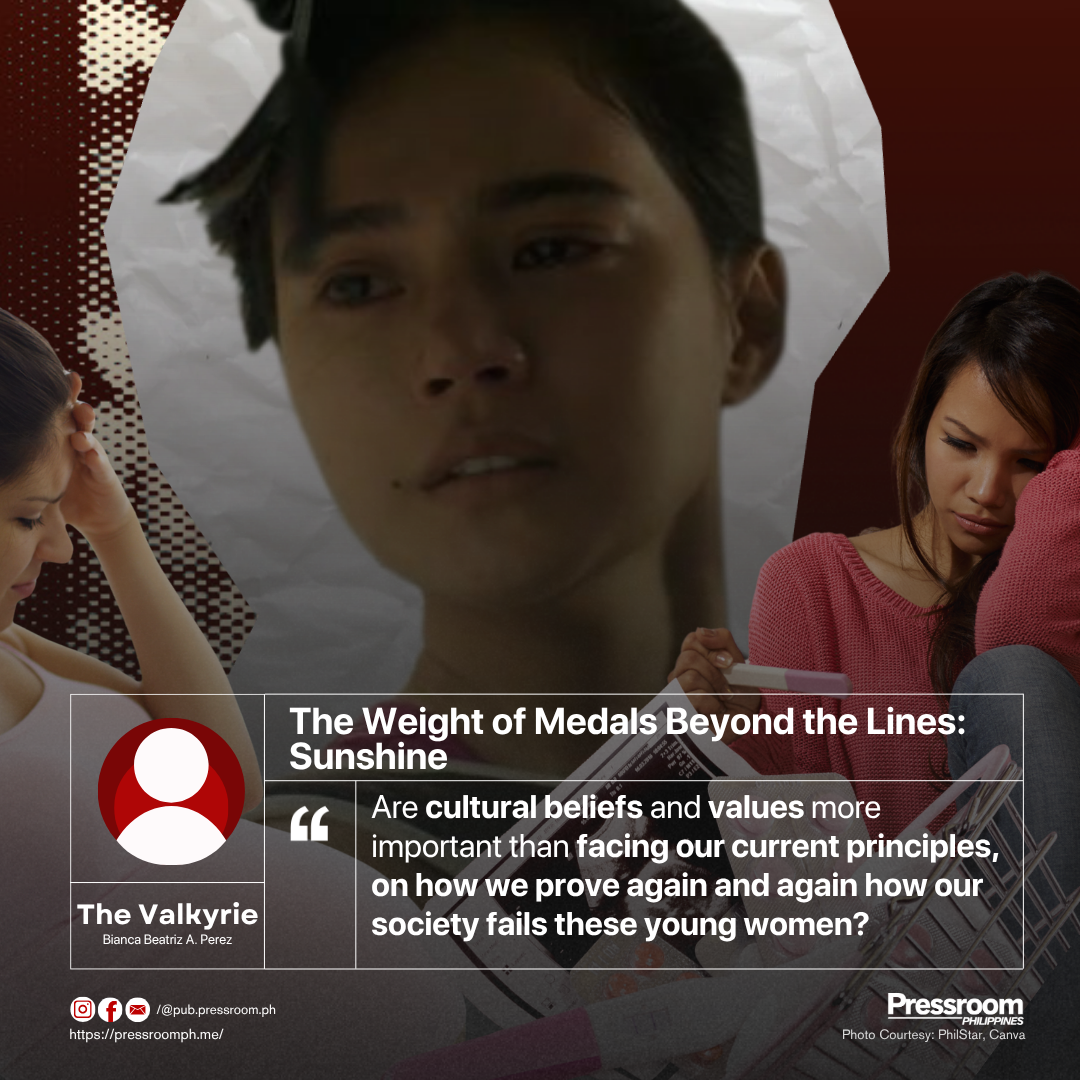
In the heart of the bustling street lies a nation of contradiction where crucifixes lay beside illegal abortion pills, where beside the two lines in one stick, only one carries the weight: Sunshine, more than just a story, but a repetition seen daily, where blood, sweat, tears and sacrifice meets a responsibility you never asked for, how many more sunshines are behind the frame?
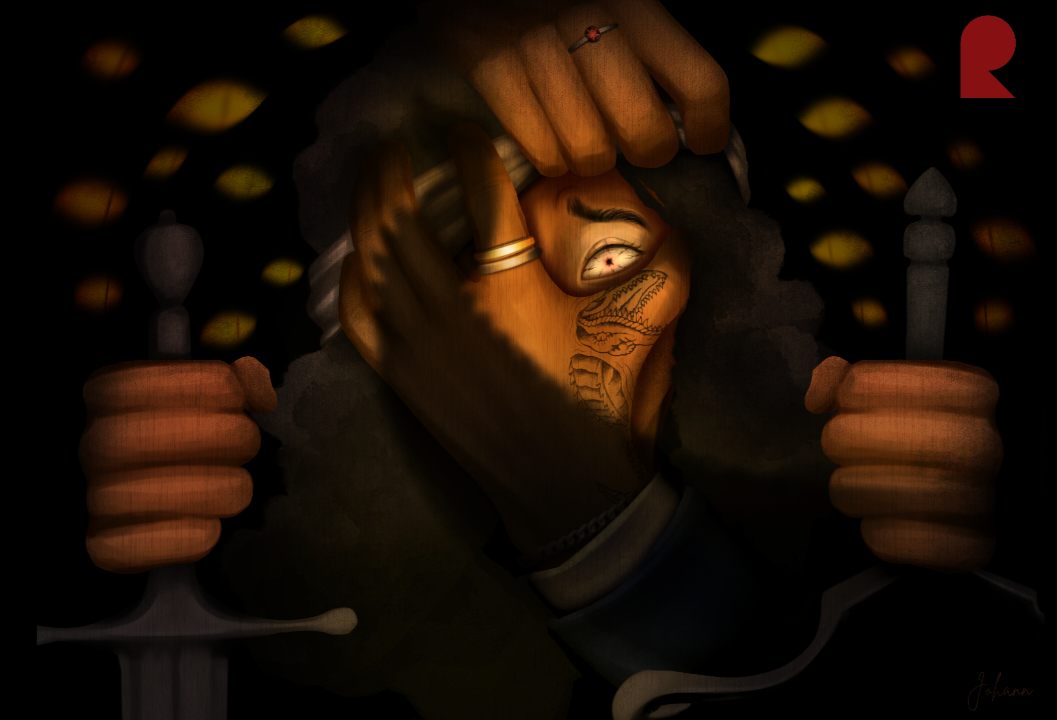
Kamakailan, ipinasya ng Korte Suprema na ang impeachment complaint laban kay Bise Presidente Sara Duterte ay labag sa Konstitusyon; isang desisyong agad ipinagdiwang ng kanyang kampo bilang “legal victory.” Ngunit huwag tayong palilinlang sa anyo ng tagumpay.
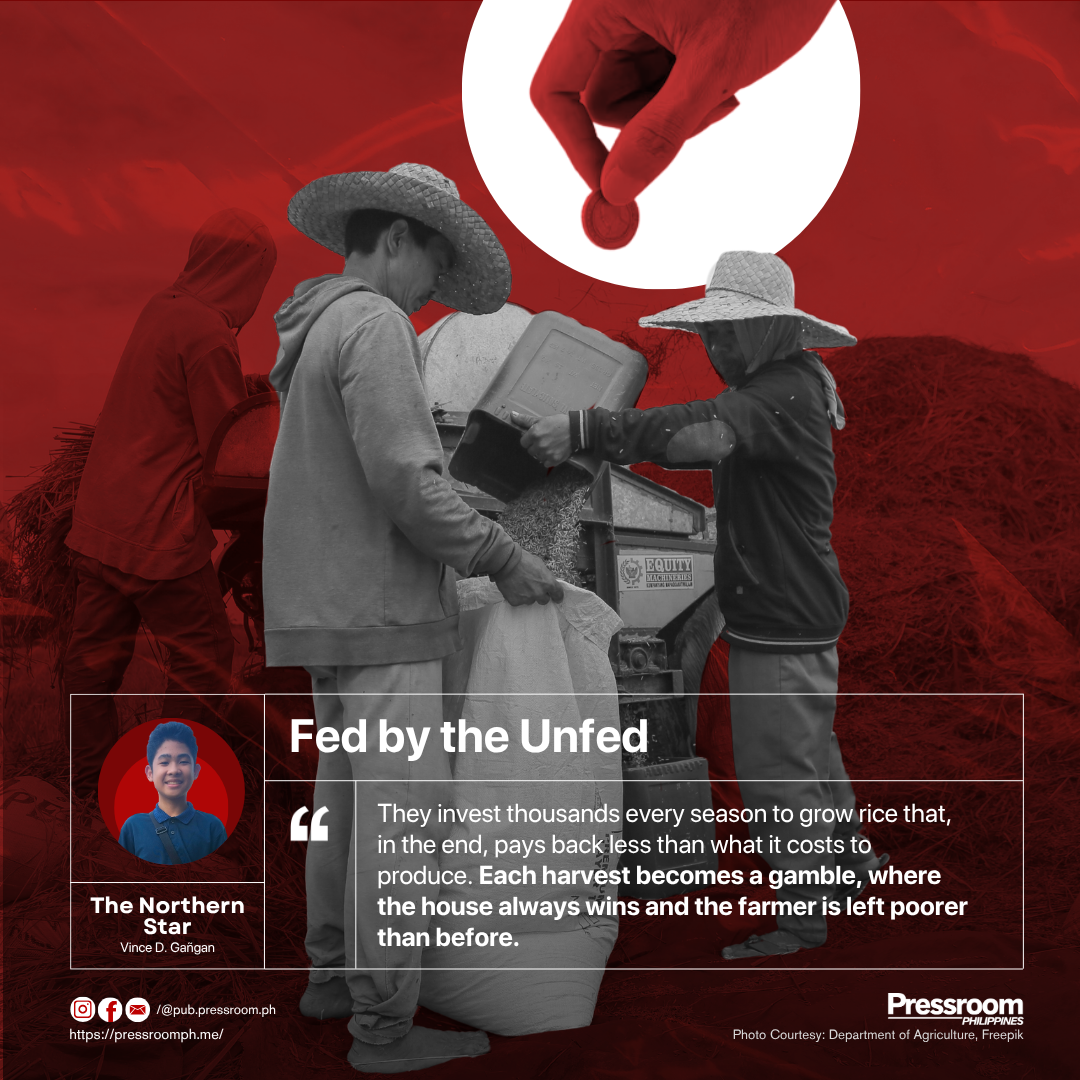
Being a farmer is hard—draining, rather. You constantly plow the fields, hands stained by the soil, sweating buckets under the scorching sun, all while still having no choice but to endure the backbreaking labor.
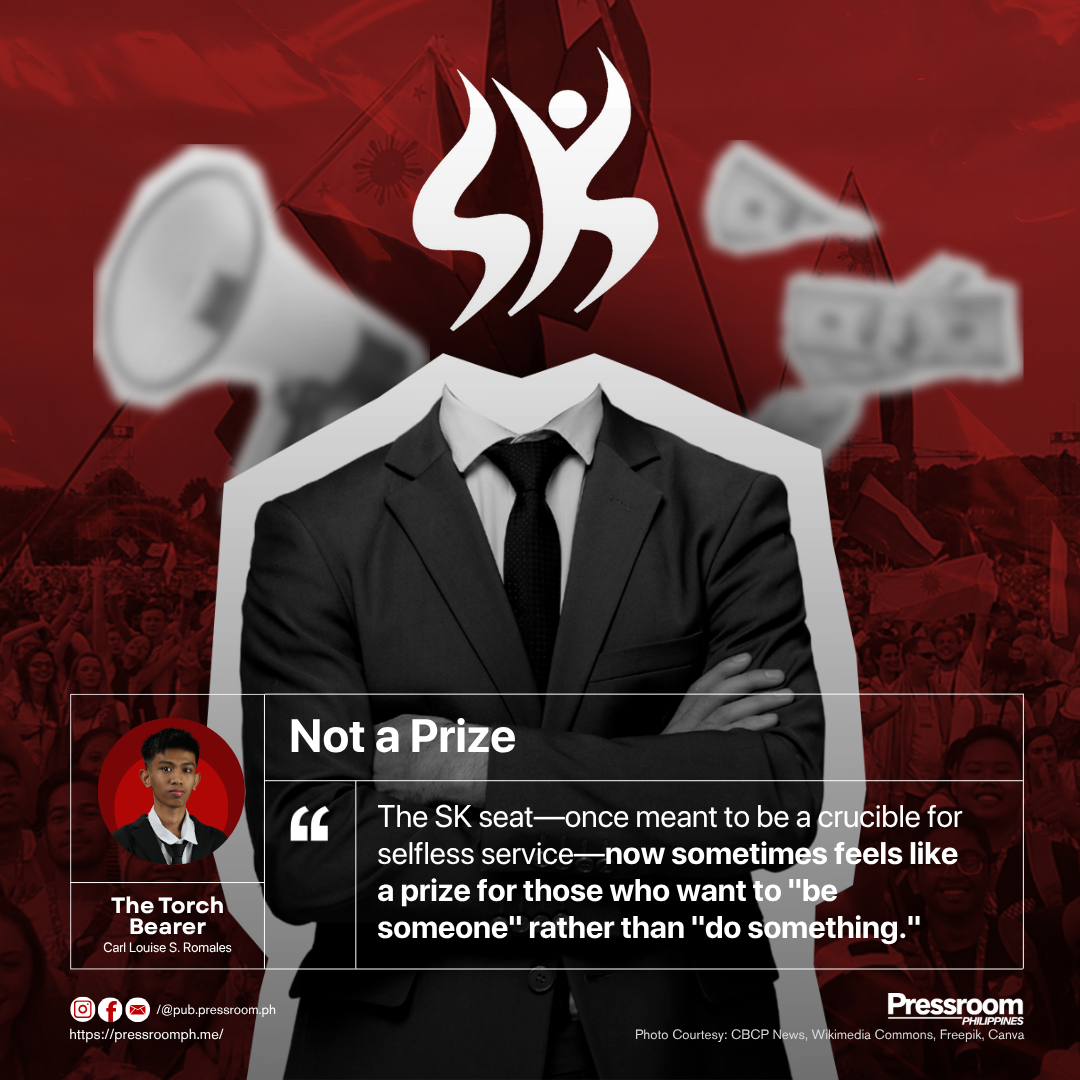
Every Barangay and Sangguniang Kabataan Election (BSKE), the Sangguniang Kabataan (SK) emerges as a beacon for the youth. It is promised as our chance, our voice, and a platform where young people can speak up. We envision youth leaders as vibrant and passionate—amplifying the needs and dreams of their fellow youth: from better sports facilities to environmental drives, from education support to mental health awareness.
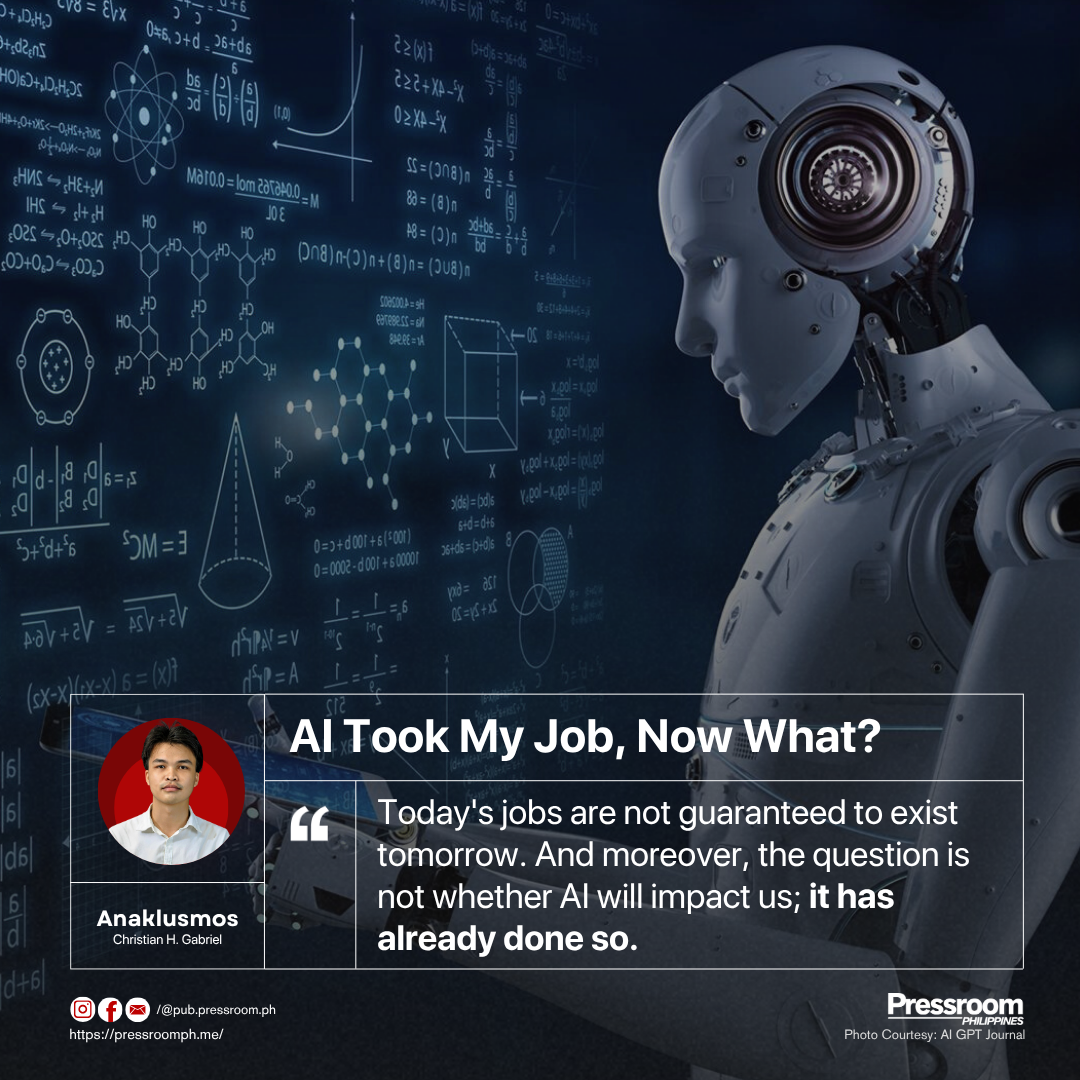
We are on the high cliff of something both revolutionary and terrifying in a world that is rapidly moving toward automation and artificial intelligence (AI). Revelation comes in hand. Microsoft researchers published the study guide list of jobs and careers that will be laid off in the near future because of Artificial Intelligence.
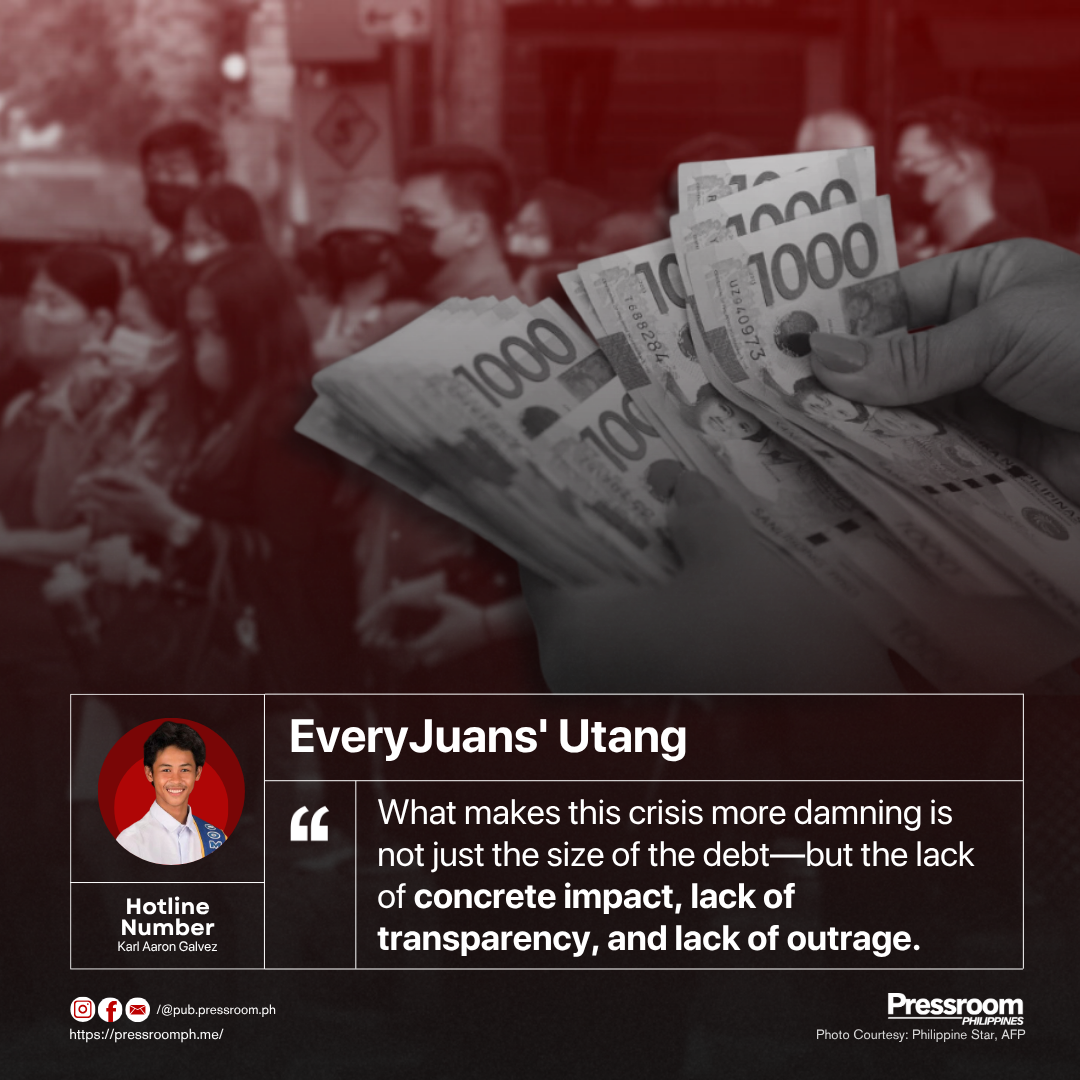
What would you do with P153,000? Buy a secondhand car? Start a business? Send someone to college? Now imagine handing that amount over to pay for a national debt you didn’t choose—and barely benefit from.
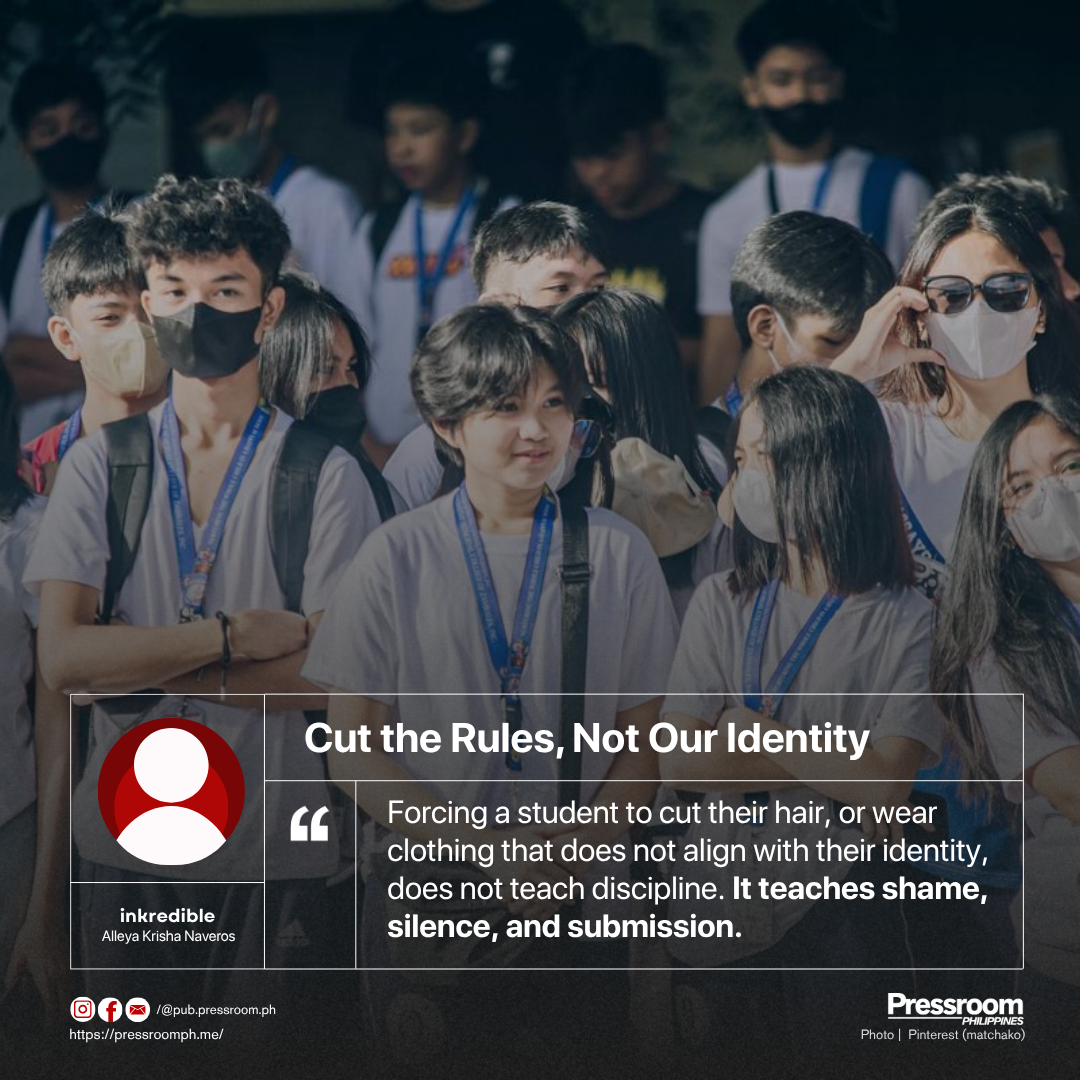
In many schools today, grooming and dress code policies continue to limit how students express themselves. Strict haircut rules and gender-based uniform policies are still imposed, often without question. While these may seem harmless to some, they deeply affect how students see themselves and how they are treated by the systems meant to protect them.
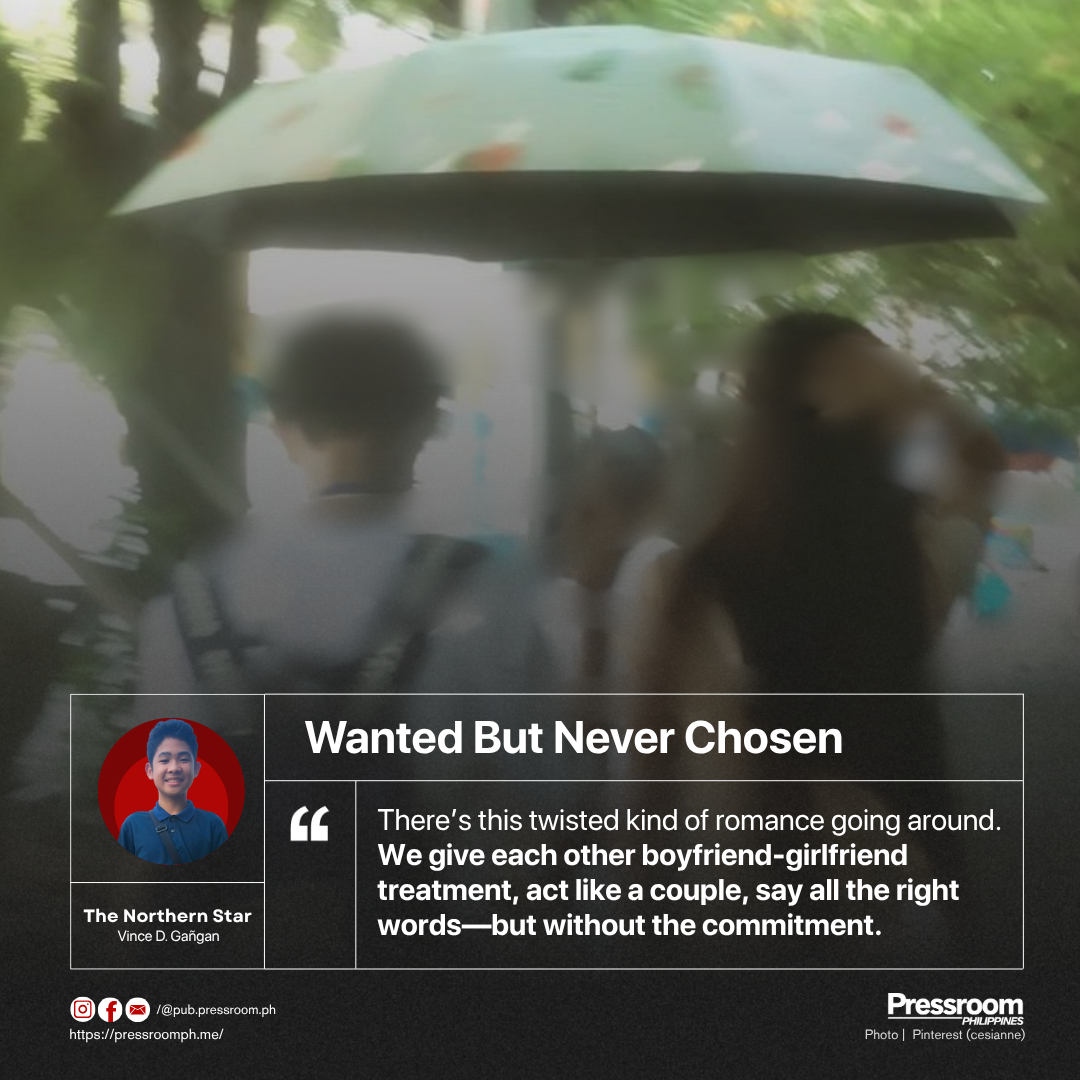
We live in a generation where saying "I like you" is easy, but staying is rare. Where Filipino teenagers fall in love with the thrill of connection, but never follow through with commitment. We want the feelings, but not the responsibility. We want the warmth, the comfort, the illusion of something real. Until it asks us to choose. And suddenly, we ran.
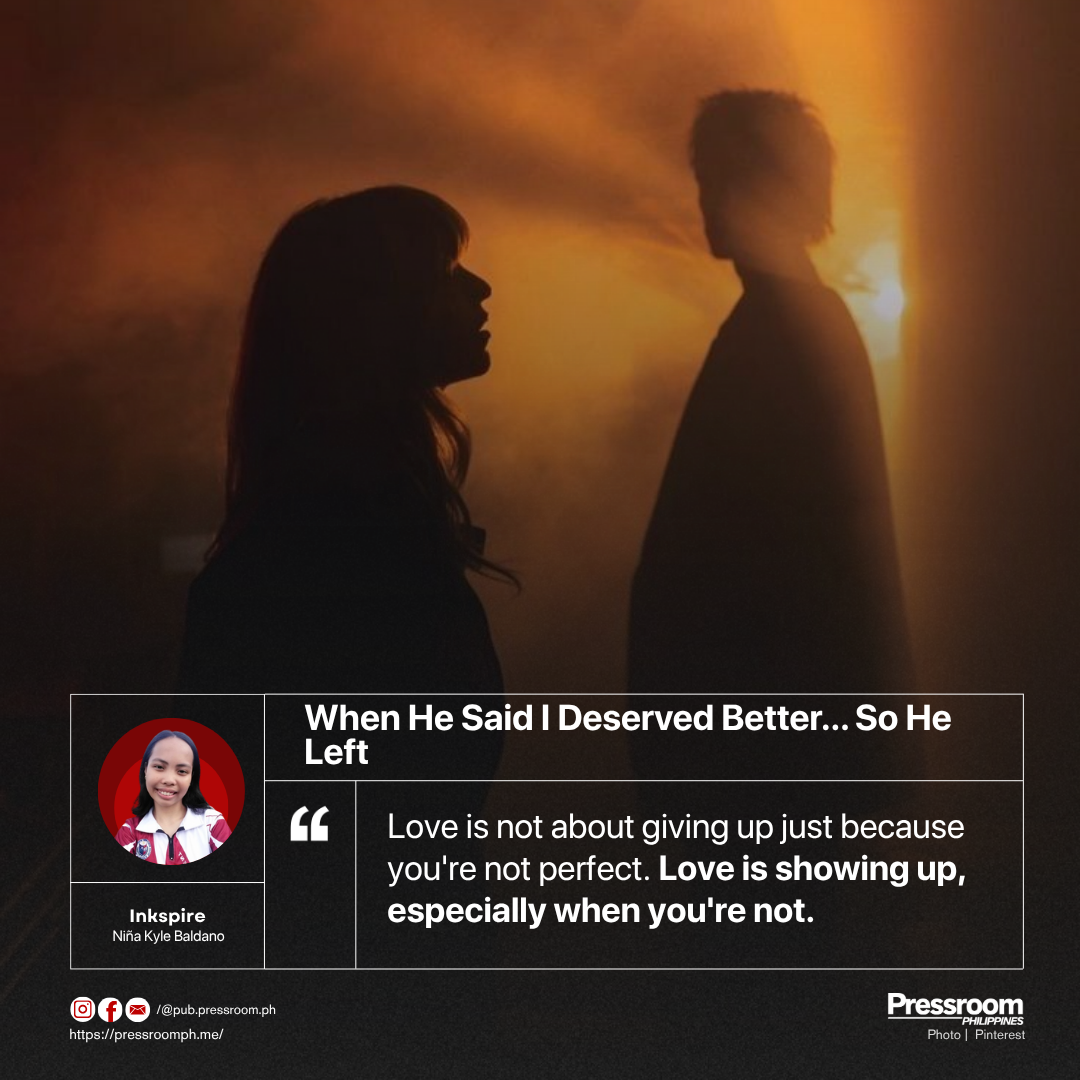
“You deserve better,” he said, as if walking away from me was an act of love.
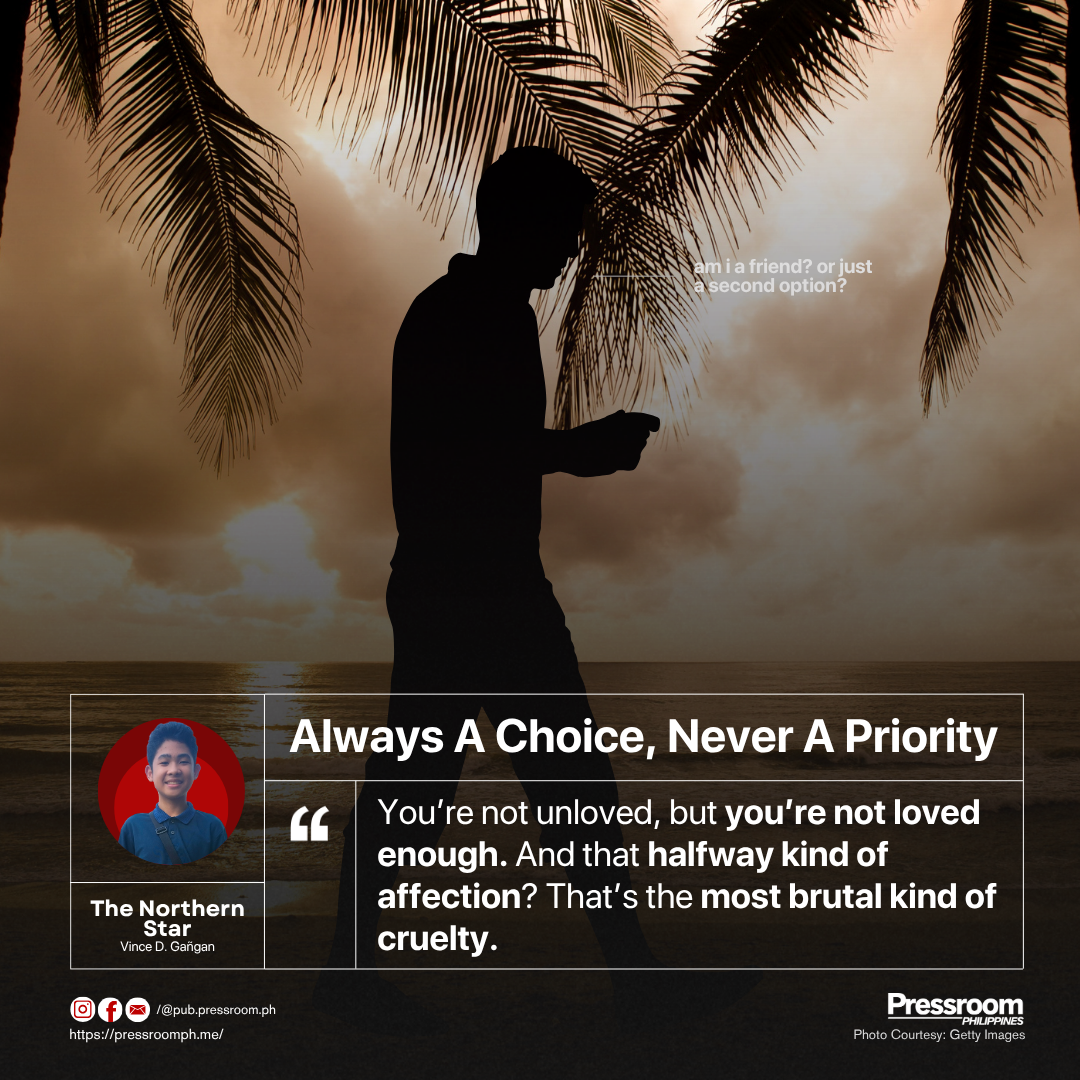
Imagine choosing someone who never chooses you back. Imagine only being called when you’re needed—never when you’re wanted. Imagine being the “reserve” friend, the fallback plan, the afterthought. Painful, isn’t it? That’s exactly what it feels like to be the second option. You’re just there, waiting to be picked, waiting to matter, waiting to become a priority to the very people you’ve already placed first.
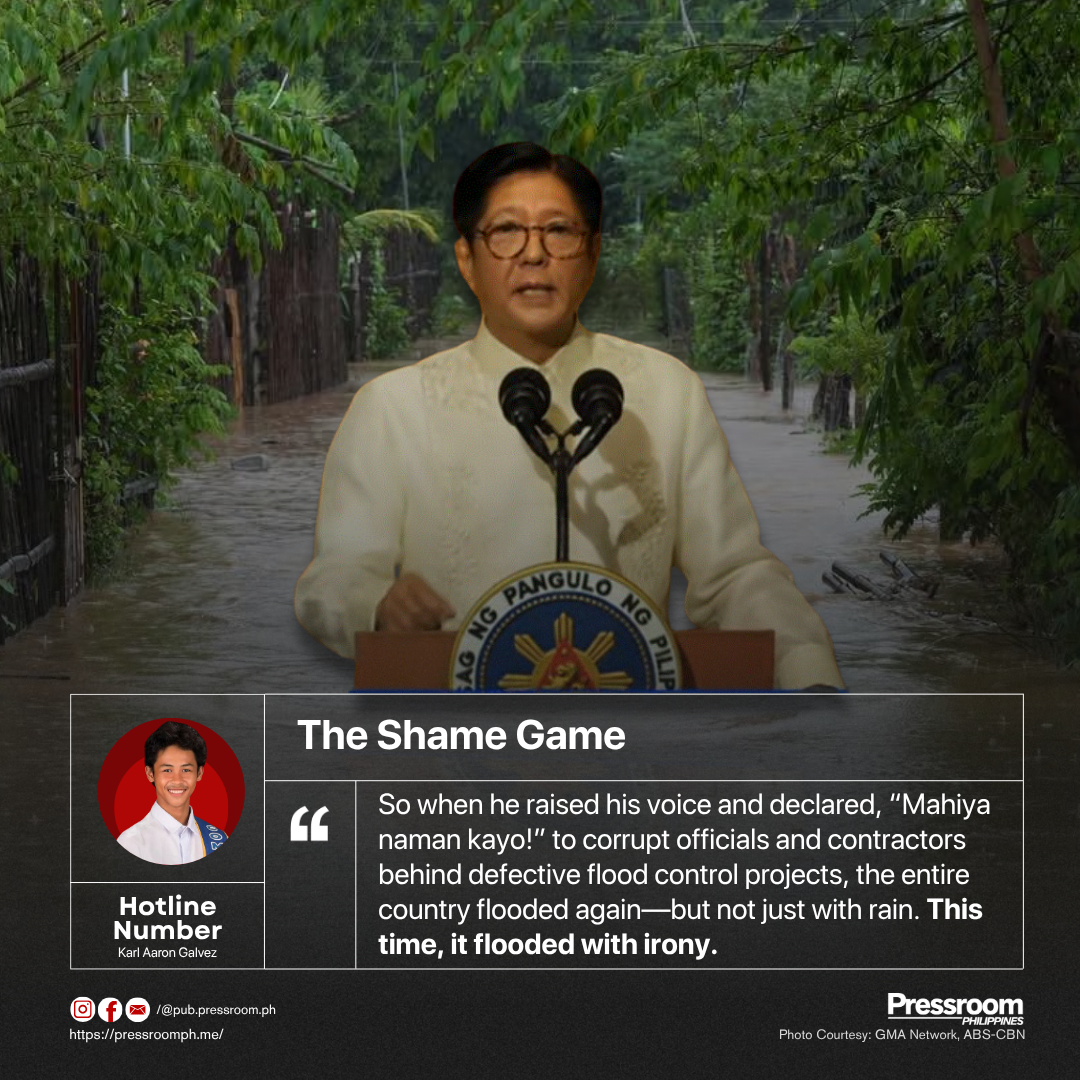
The President called for shame. But when the streets flood and billions vanish into thin air, sometimes the loudest cries of blame echo back to where they started.
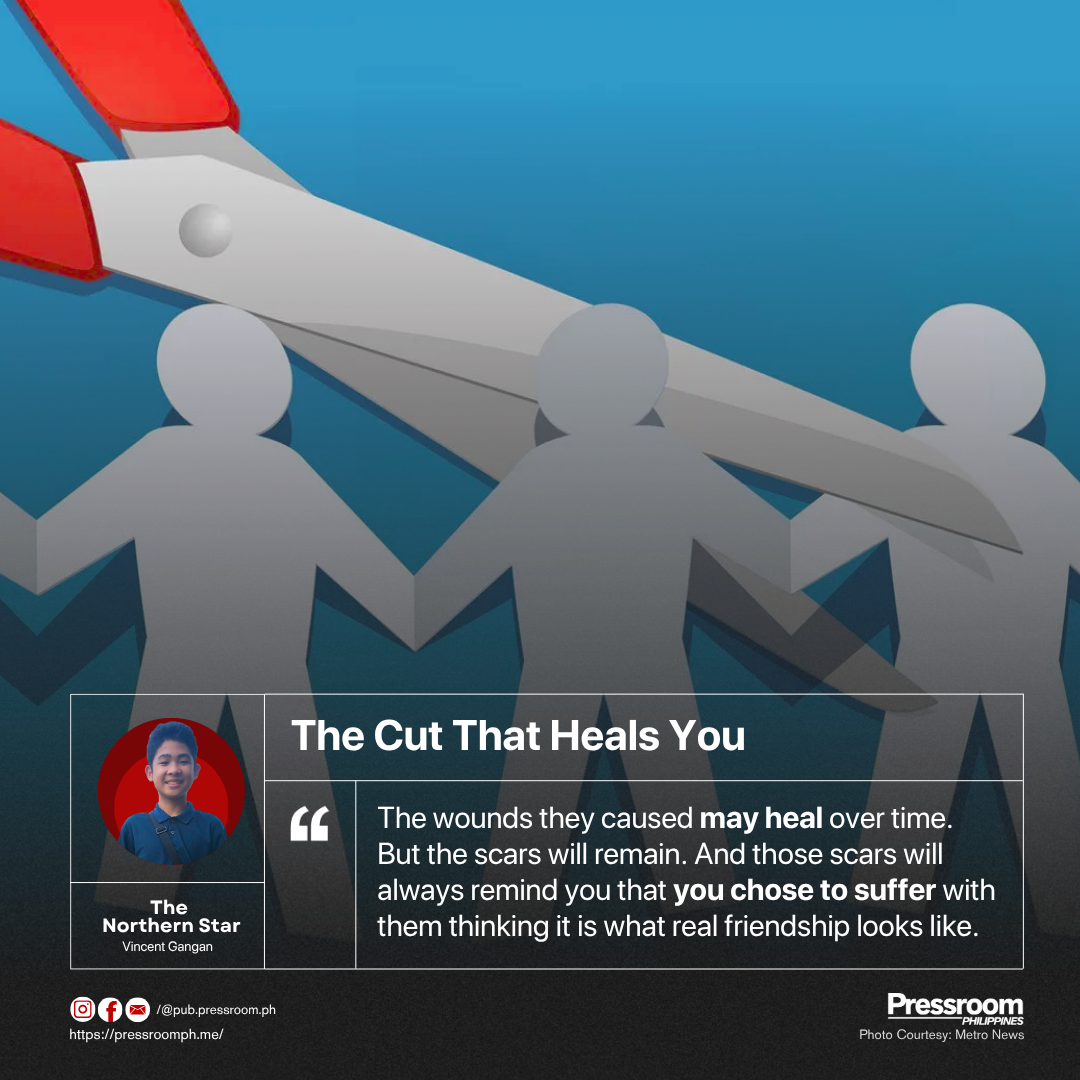
There is a belief that every slash, every slice, and every cut you do will always end with you bleeding. But what if that same cut that makes you bleed results in you feeling better, happier, and livelier than ever?

In many schools today, grooming and dress code policies continue to limit how students express themselves. Strict haircut rules and gender-based uniform policies are still imposed, often without question. While these may seem harmless to some, they deeply affect how students see themselves and how they are treated by the systems meant to protect them.
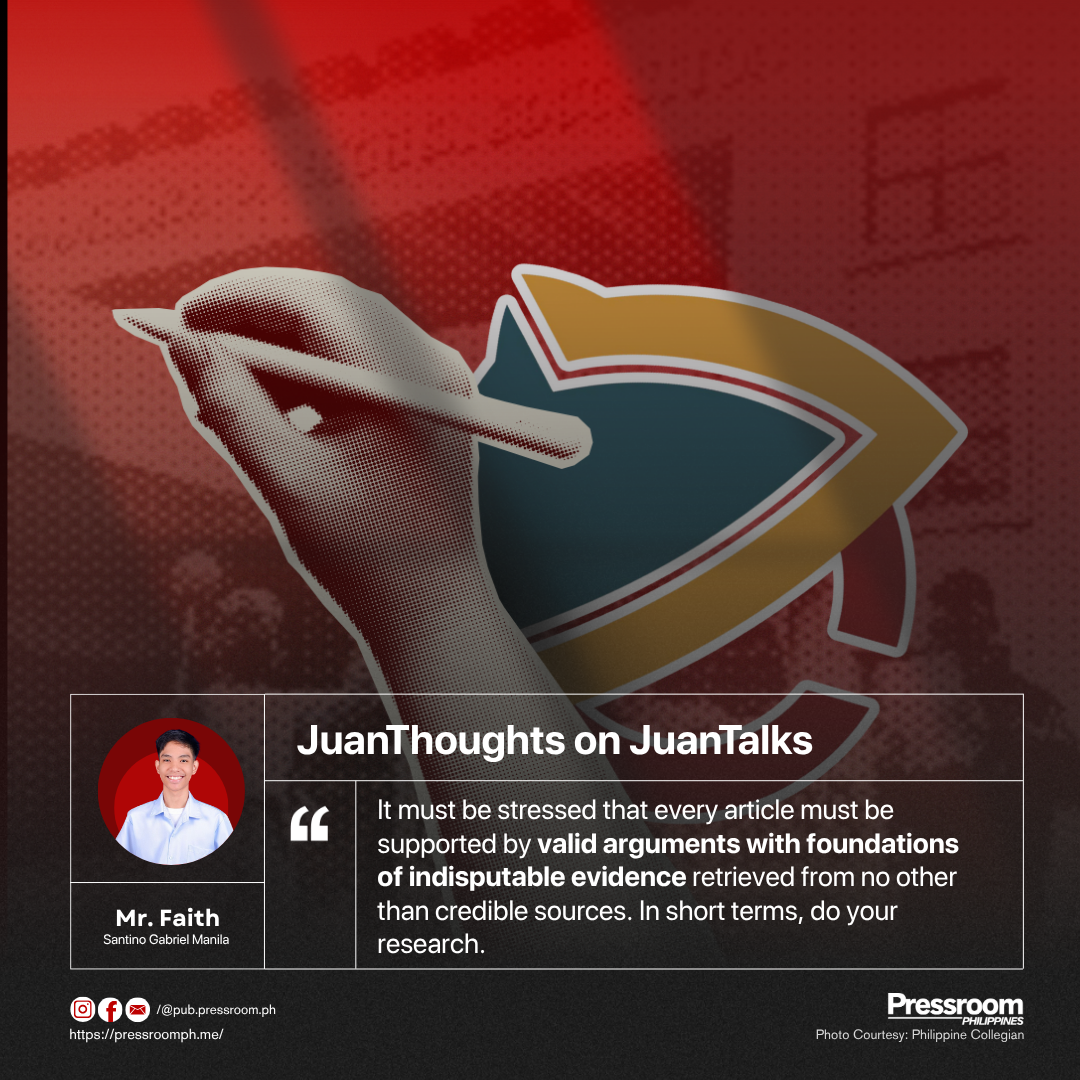
I never really realized the weight of true journalism until the JuanClick alliance for national youth-led online publications held their first JuanTalks focus group discussion held on July 25 in practicing their privilege during the National Campus Press Freedom Day. The memory was fresh; being eager to enter the seminar with the prospect of becoming a better writer and leaving with more than I could have ever conceived.
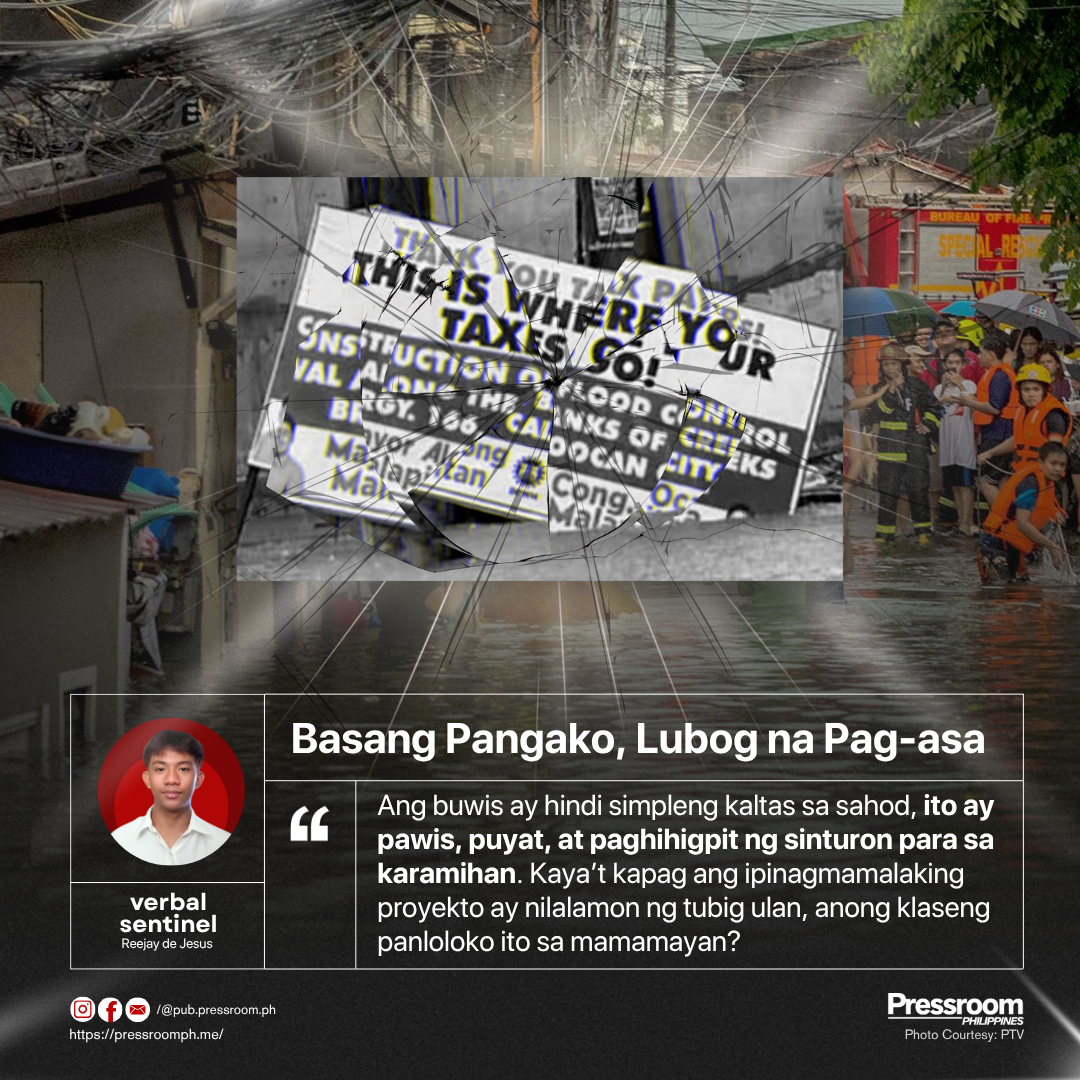
Sa larawang kumalat kamakailan, isang tarpaulin ang lantaran at buong kumpiyansang nagsasabing: “THANK YOU TAX PAYERS! THIS IS WHERE YOUR TAXES GO!” Isa raw itong paalala ng proyekto para sa flood control wall sa Caloocan at ironiko, dahil habang binabasa mo ang tarpaulin, lubog ito sa baha.
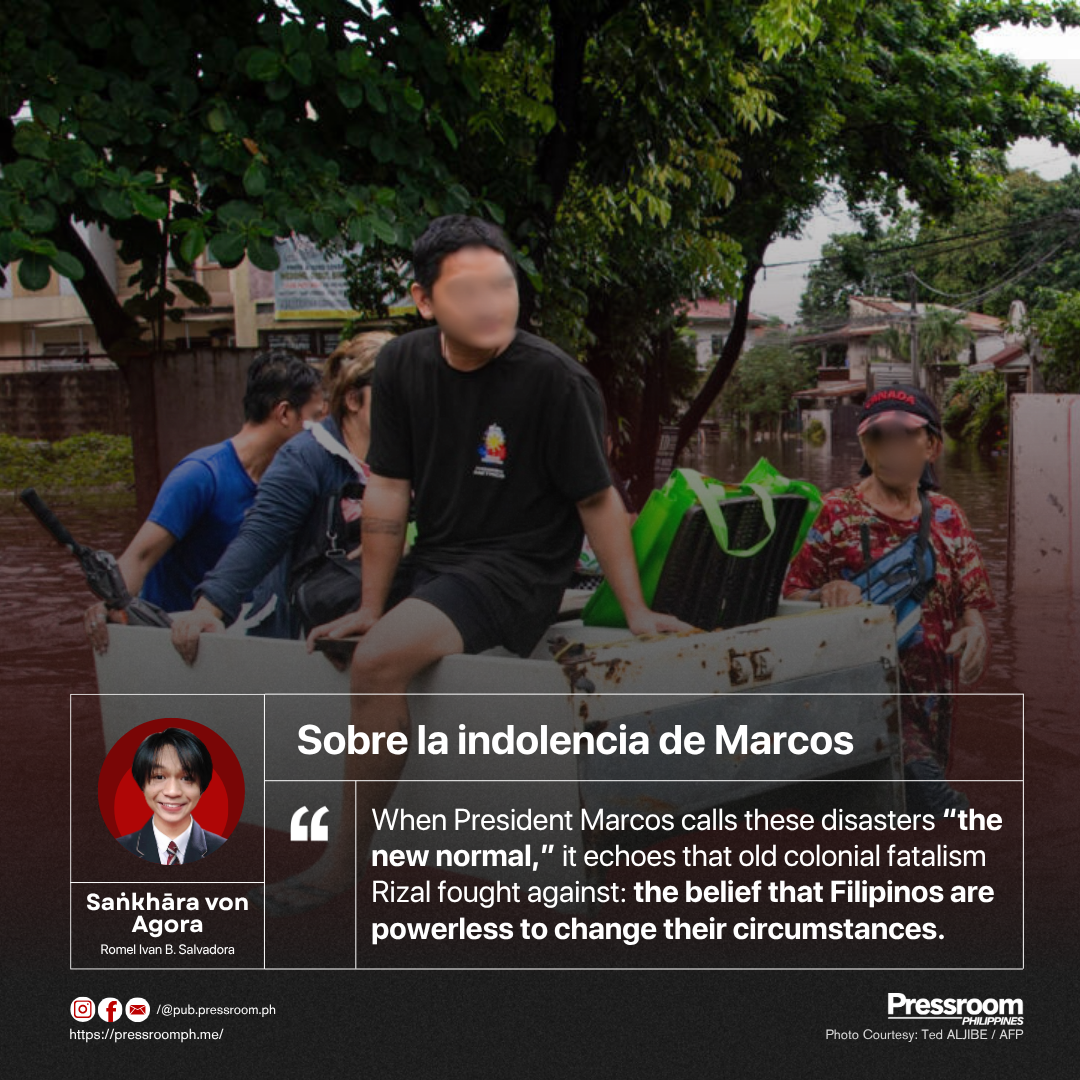
"This is the new normal." A quote from President Ferdinand “Bongbong” Marcos Jr., as floods swallowed entire barangays, landslides reshaped the countryside, and Filipinos once again found themselves waist-deep in murky water. The President’s message was simple: storms are inevitable, disasters are inevitable, and suffering is inevitable. Accept it.
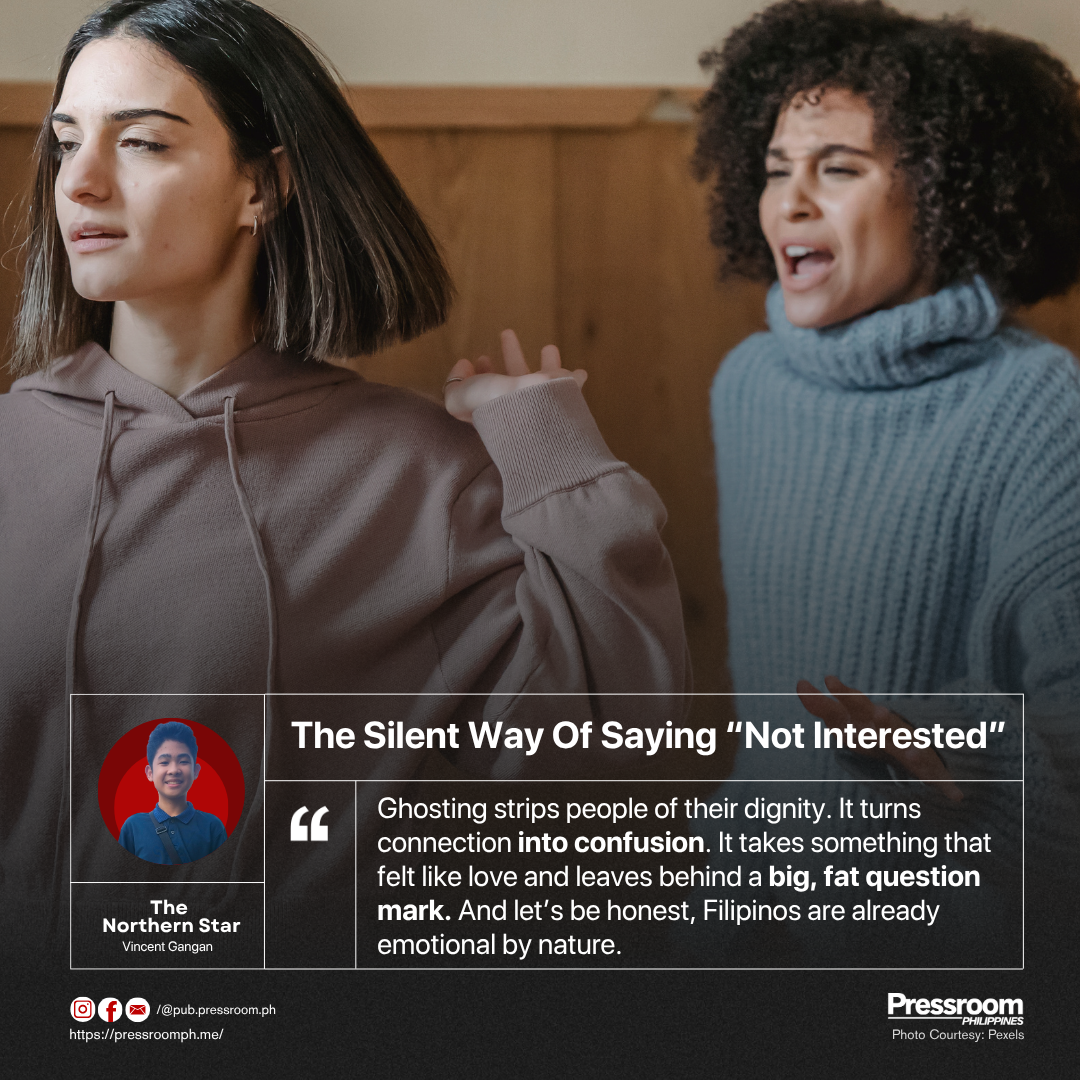
“Sent 20 hours ago.” “Seen 20 hours ago.” It is undoubtedly infuriating when your message gets seen but never receives a reply, and it is even more infuriating when that message is urgent. But getting left on seen for hours by the person you love does not cause annoyance, but sadness, overthinking, and the birth of never-ending “what ifs.”
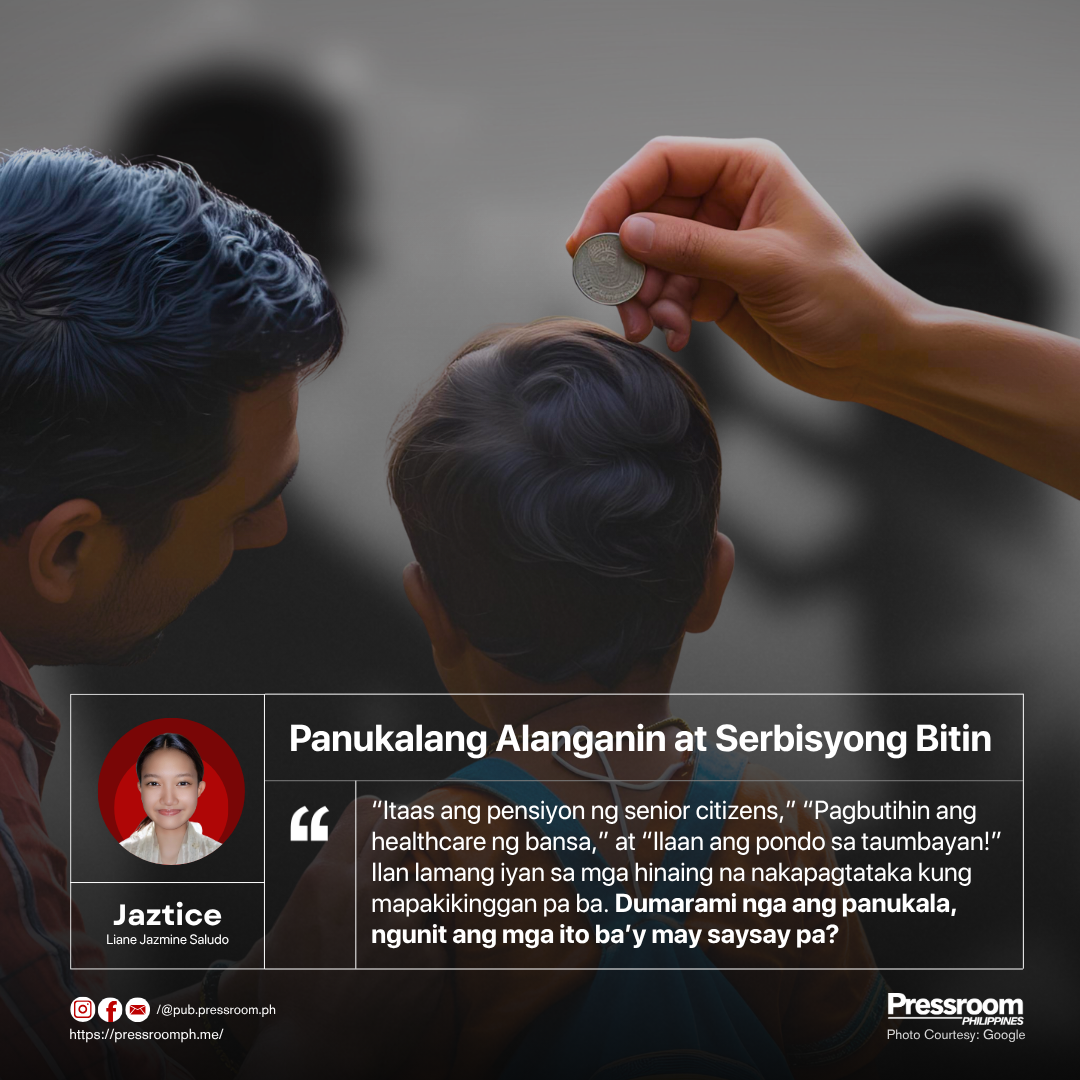
“Itaas ang pensiyon ng senior citizens,” “Pagbutihin ang healthcare ng bansa,” at “Ilaan ang pondo sa taumbayan!” Ilan lamang iyan sa mga hinaing na nakapagtataka kung mapakikinggan pa ba. Dumarami nga ang panukala, ngunit ang mga ito ba’y may saysay pa?
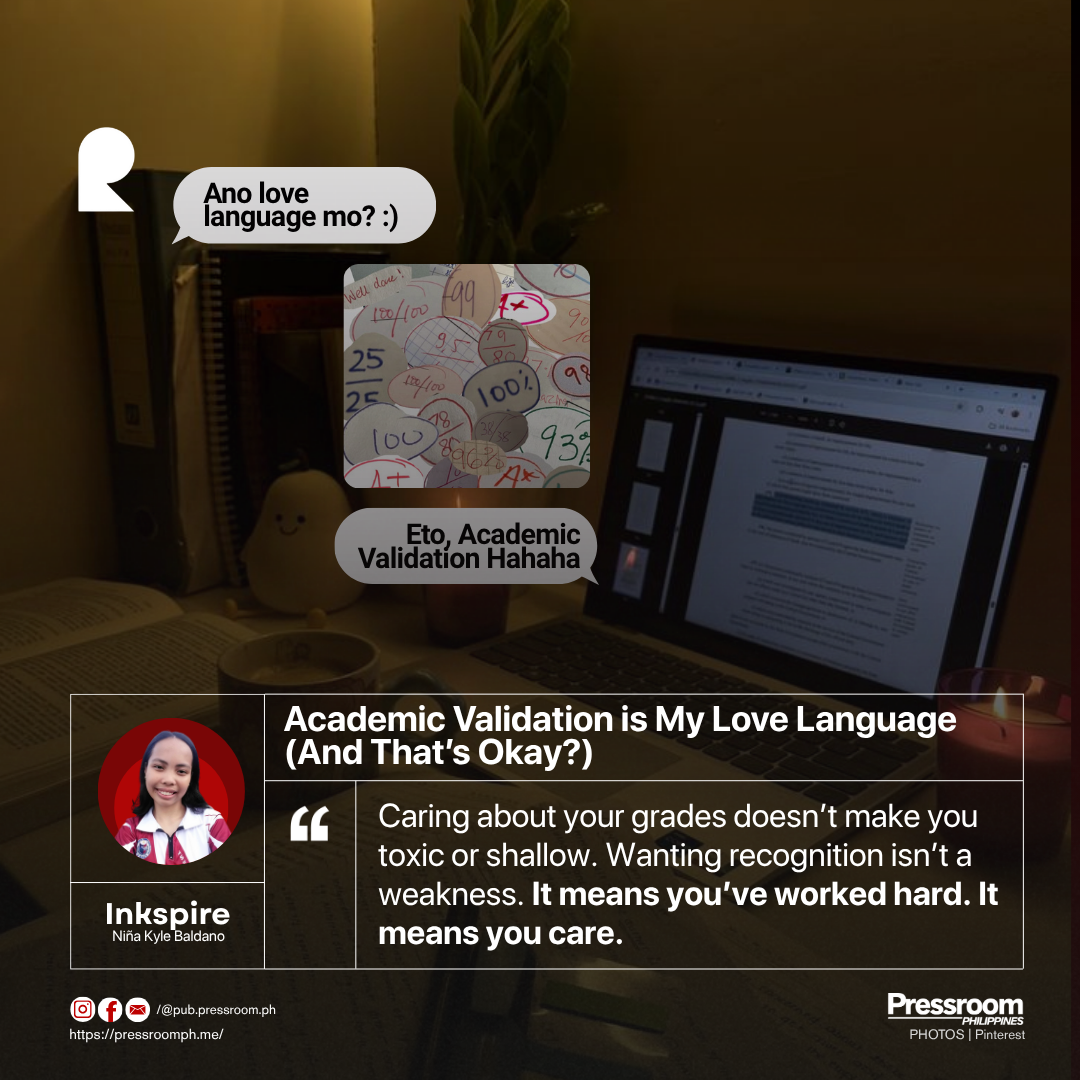
"Who am I if I’m not at the top of the class?" It’s a quiet kind of breakdown — the one that happens after a “low” score, even if it’s a 92. The kind that creeps in when the recognition list gets posted and your name isn’t there. It’s not about being dramatic. It’s about being so used to applause, you start fearing silence.
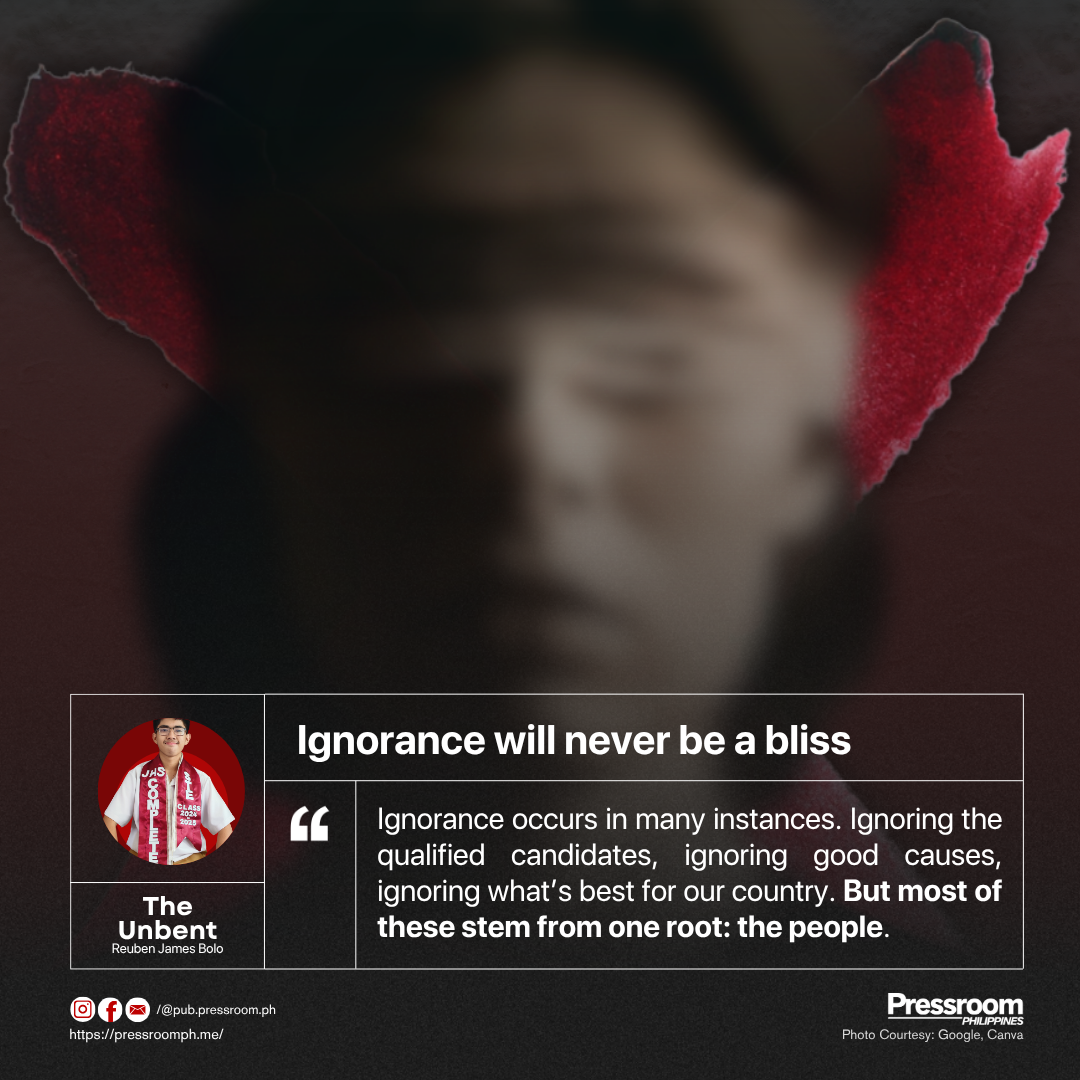
We’ve all heard that phrase our whole lives. We grew up with it, and we embodied it. However, as I grow older, the quote no longer reflects a life of peace and serenity. It reflects ignorance of reality.
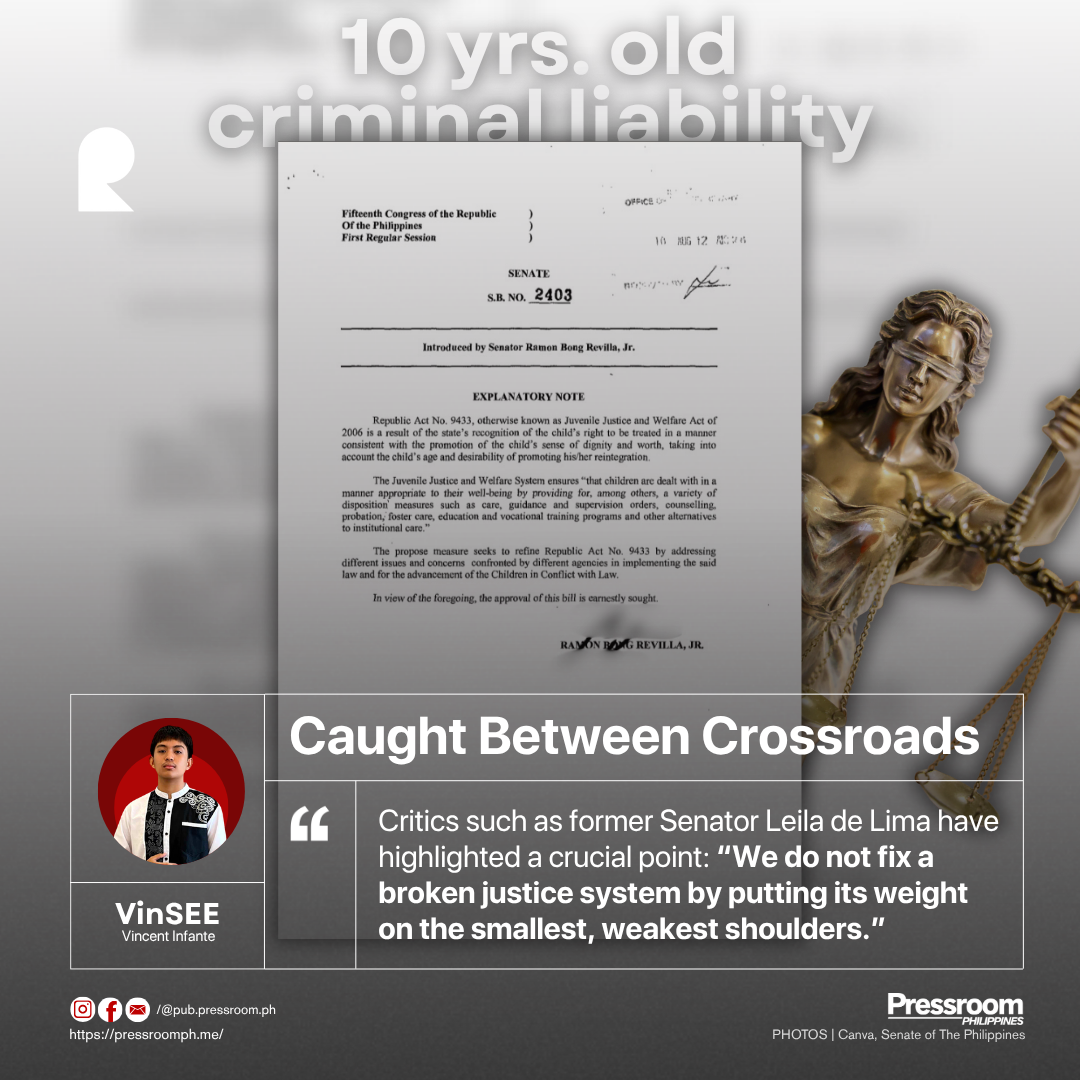
In the heart of the fight against injustice. Looms a bill who seeks justice against people whom deprived from justice. The future of young immature kids caught between crossroads. Is this the right path or the worse path?
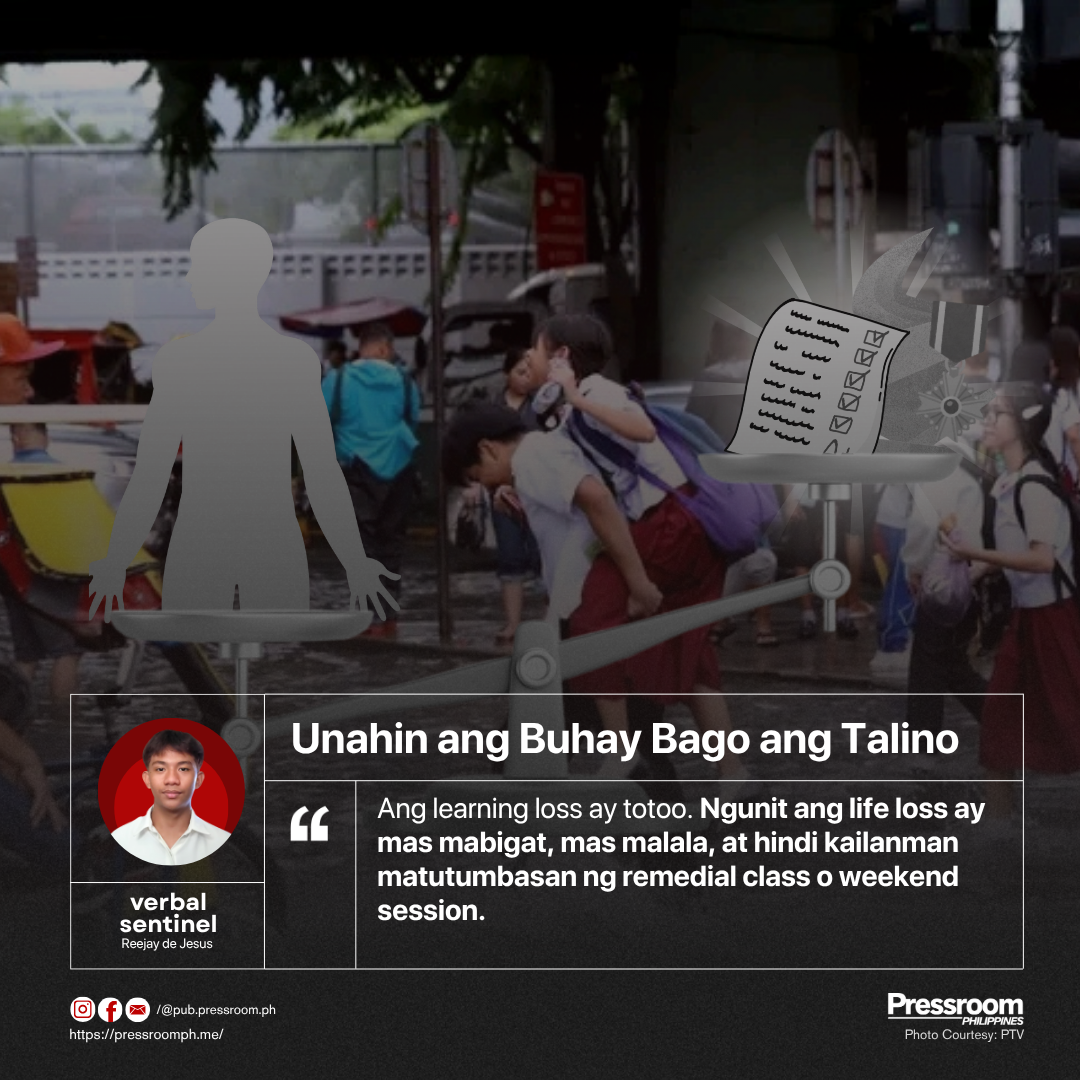
Kamakailan ay naging laman ng balita ang pahayag ni DepEd Secretary Sonny Angara kaugnay sa sunod-sunod na suspensyon ng klase tuwing may pag-ulan. Ayon sa kanya, "Huwag nating masyadong i-pressure ang ating local government, chief executives, na konting ulan ay mag-suspend na tayo... dahil kapag sinumatotal natin ang mga nawawalang araw, malaki ang dagok o tama sa ating mga estudyante, 'yung tinatawag na learning loss."
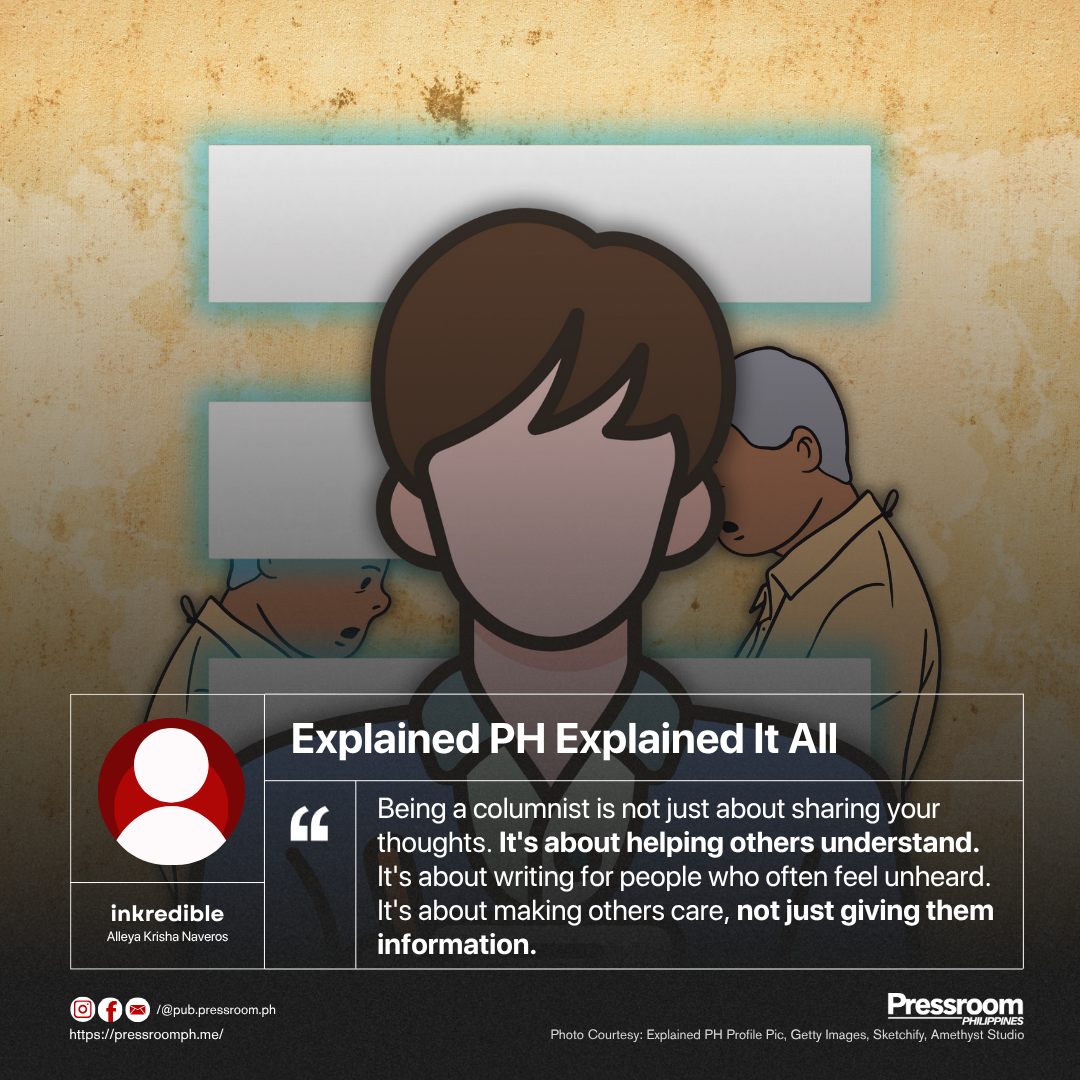
Not everyone reads the news. Some find it boring, others find it confusing. But one page changed how I looked at it. Explained PH helped me understand things that school or media couldn't fully explain. That's where it all started for me.
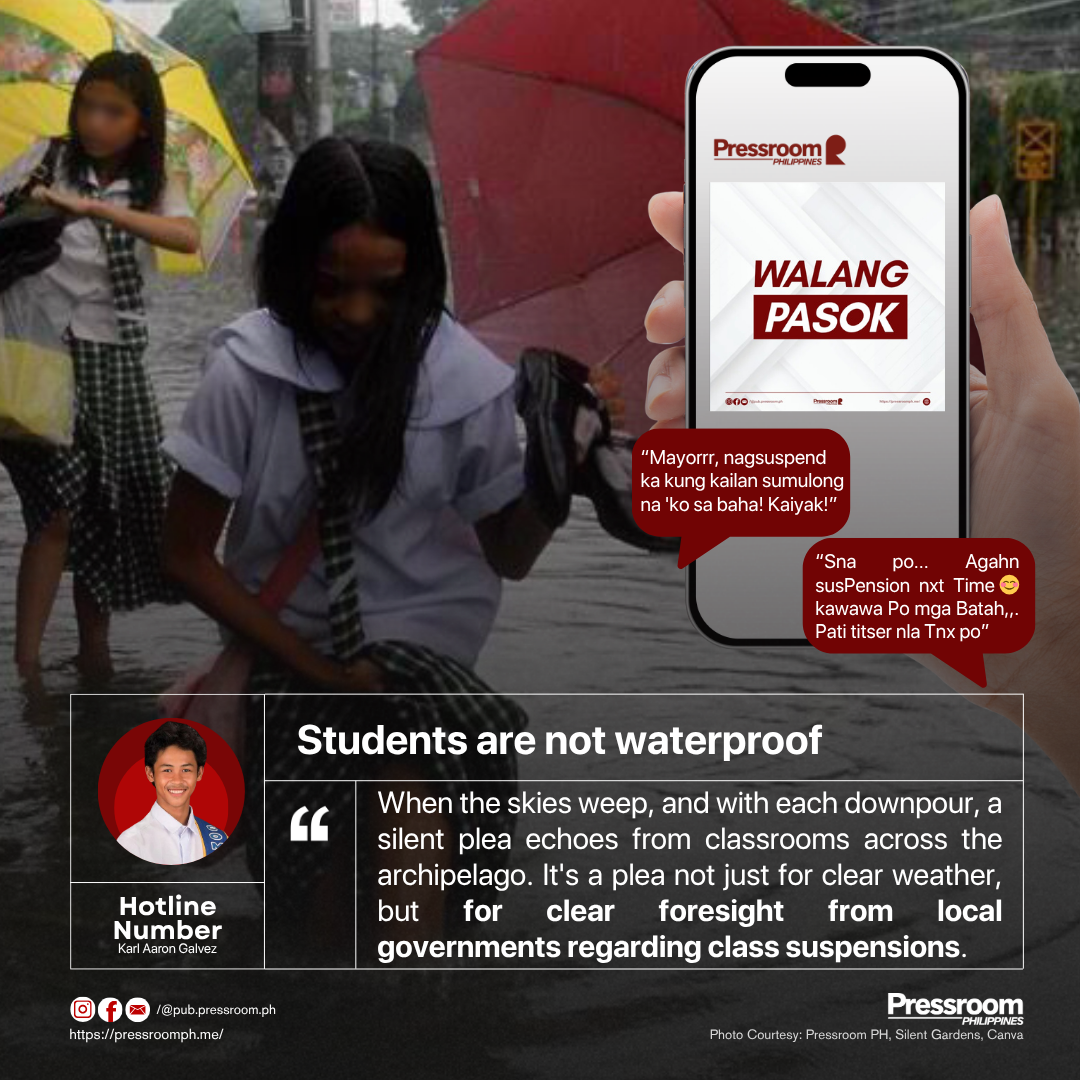
Every time the rain intensifies, a silent question hangs in the air for thousands of Filipino families: "Do we send our children to school?" It's a dilemma born from genuine concern, forcing parents to weigh safety against attendance. But, the answer should be clear from the start: students are not waterproof.
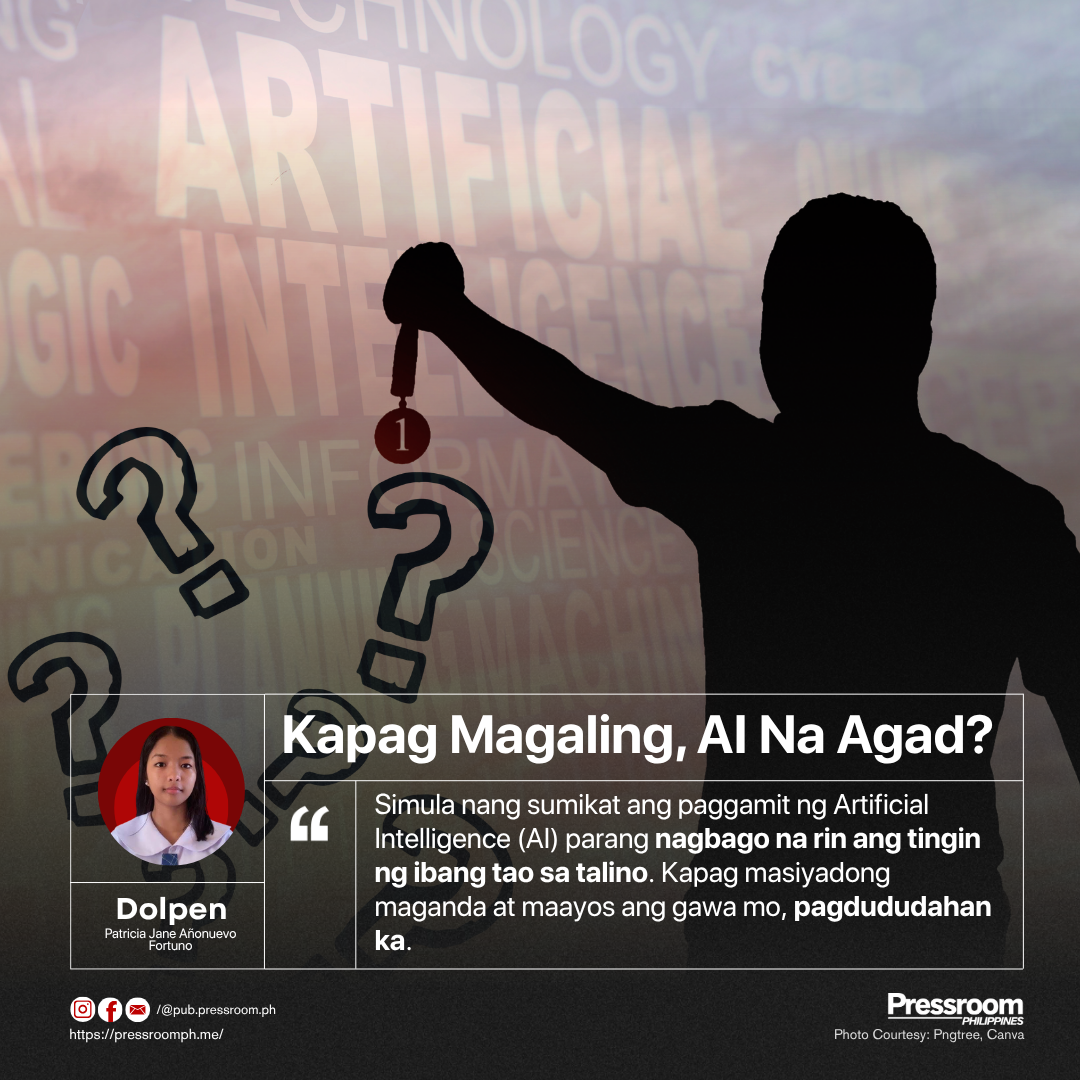
Simula nang sumikat ang paggamit ng Artificial Intelligence (AI) parang nagbago na rin ang tingin ng ibang tao sa talino. Kapag masiyadong maganda at maayos ang gawa mo, pagdududahan ka. Kapag walang mali, hindi ka na ang gumawa, AI raw. Parang noon lang, pinupuri pa ang mga effort, ngayon, inaakusahan na.
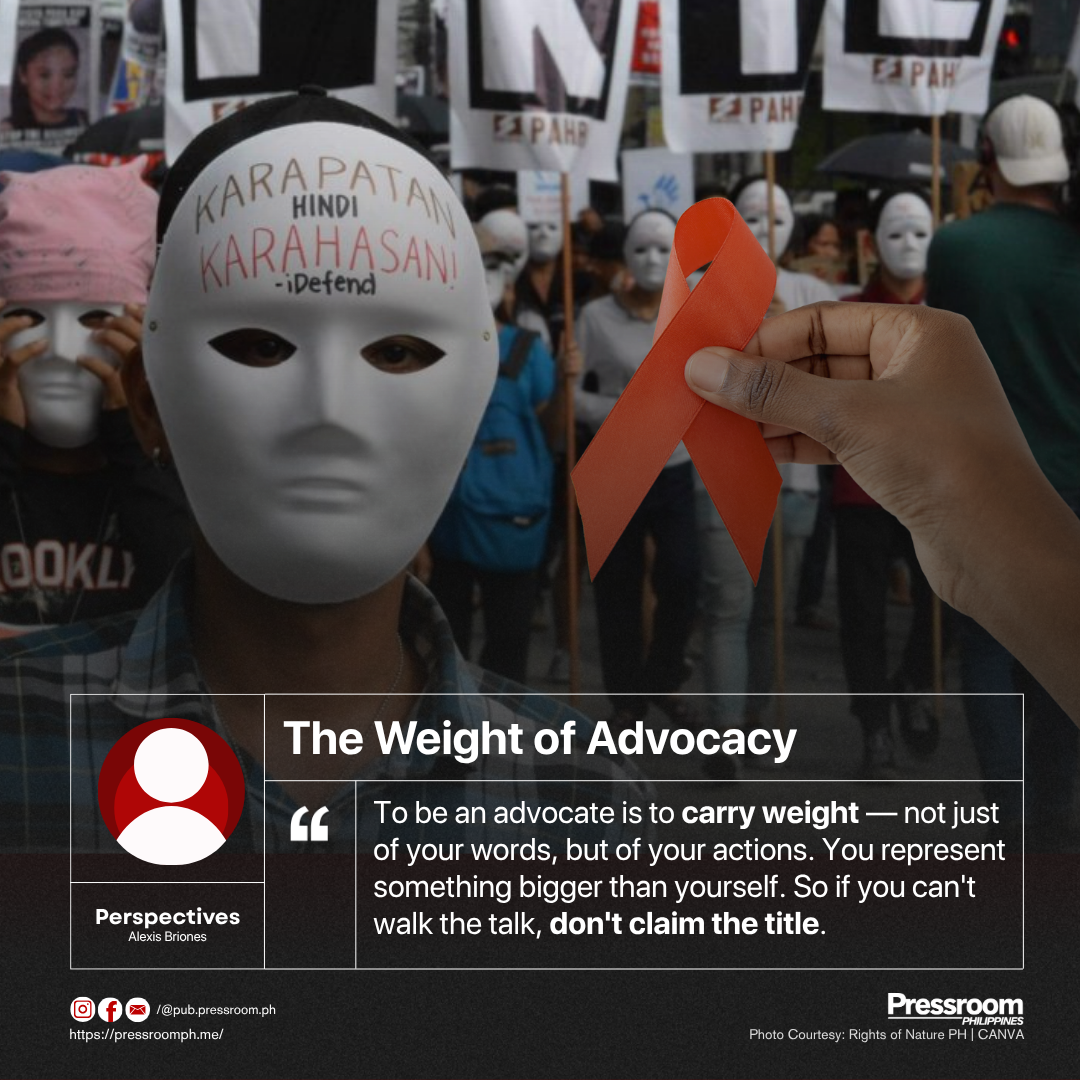
What does it truly mean to be an advocate? I’ve asked myself this more times than I can count — especially when I see people so quick to embrace the label, yet so careless in upholding its meaning. Advocacy is not a performance. It’s not something you parade for applause or stamp beside your name for recognition. It’s not loud tweets or pretty captions. If anything, it’s quiet, it’s difficult, and it demands more from you than it ever rewards.
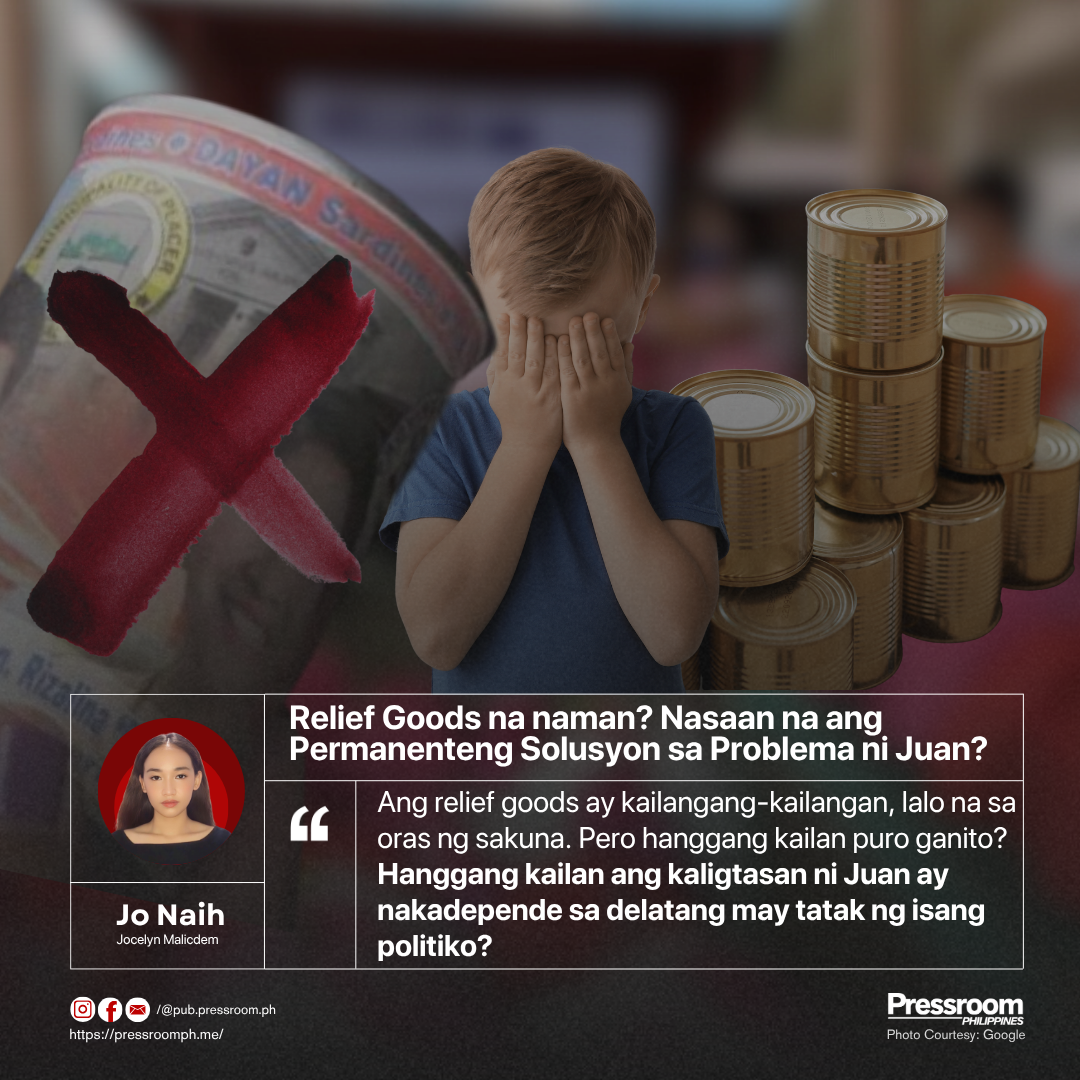
Tuwing bumubulong ang hangin at ang langit ay unti-unting nagdidilim, kumakabog na naman ang dibdib ni Juan.
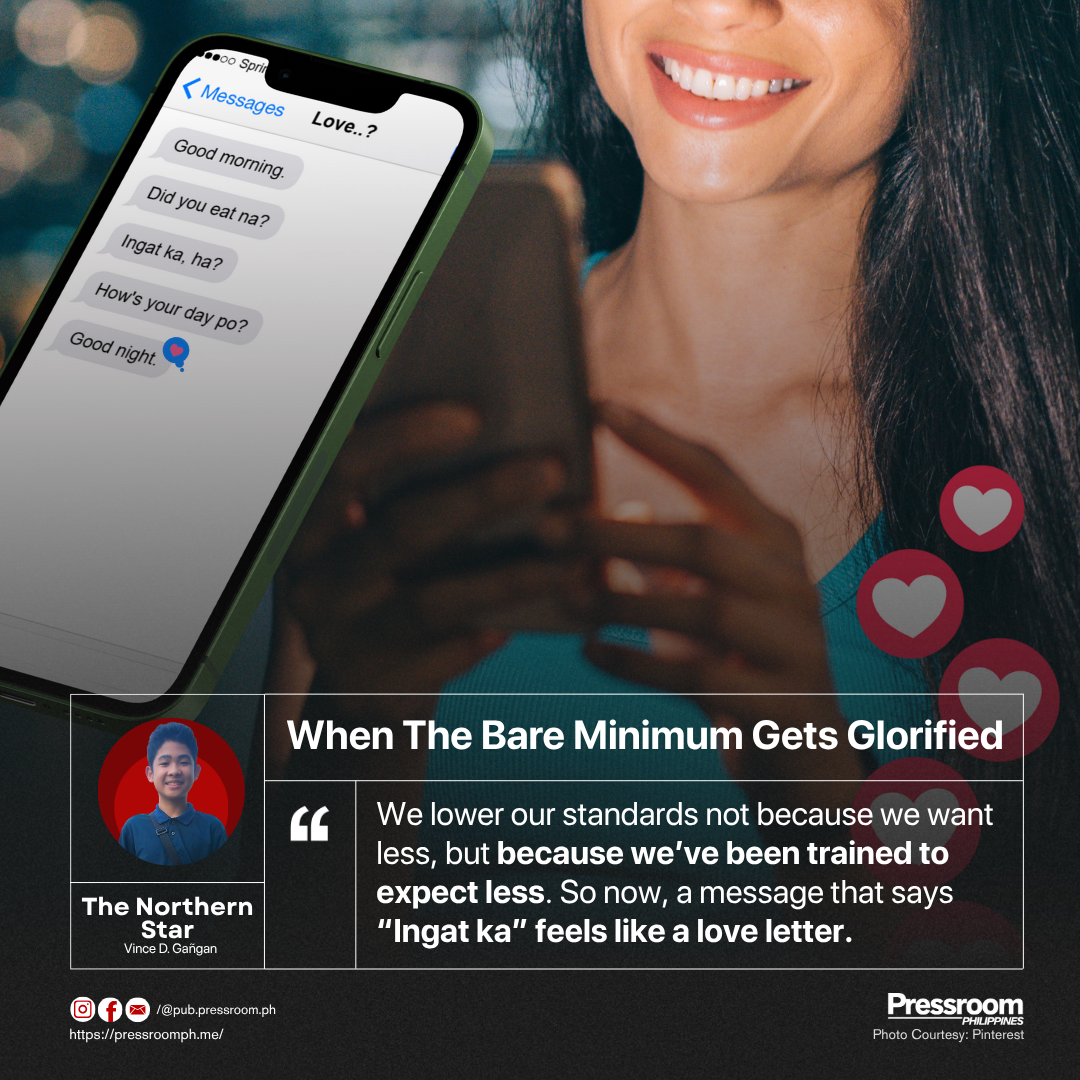
“Good morning.” “Did you eat na?” “Ingat ka, ha?” “How's your day po?” “Good night.” Sweet? Maybe. But let’s not flatter ourselves—these are just basic expressions of care, not grand romantic feats.
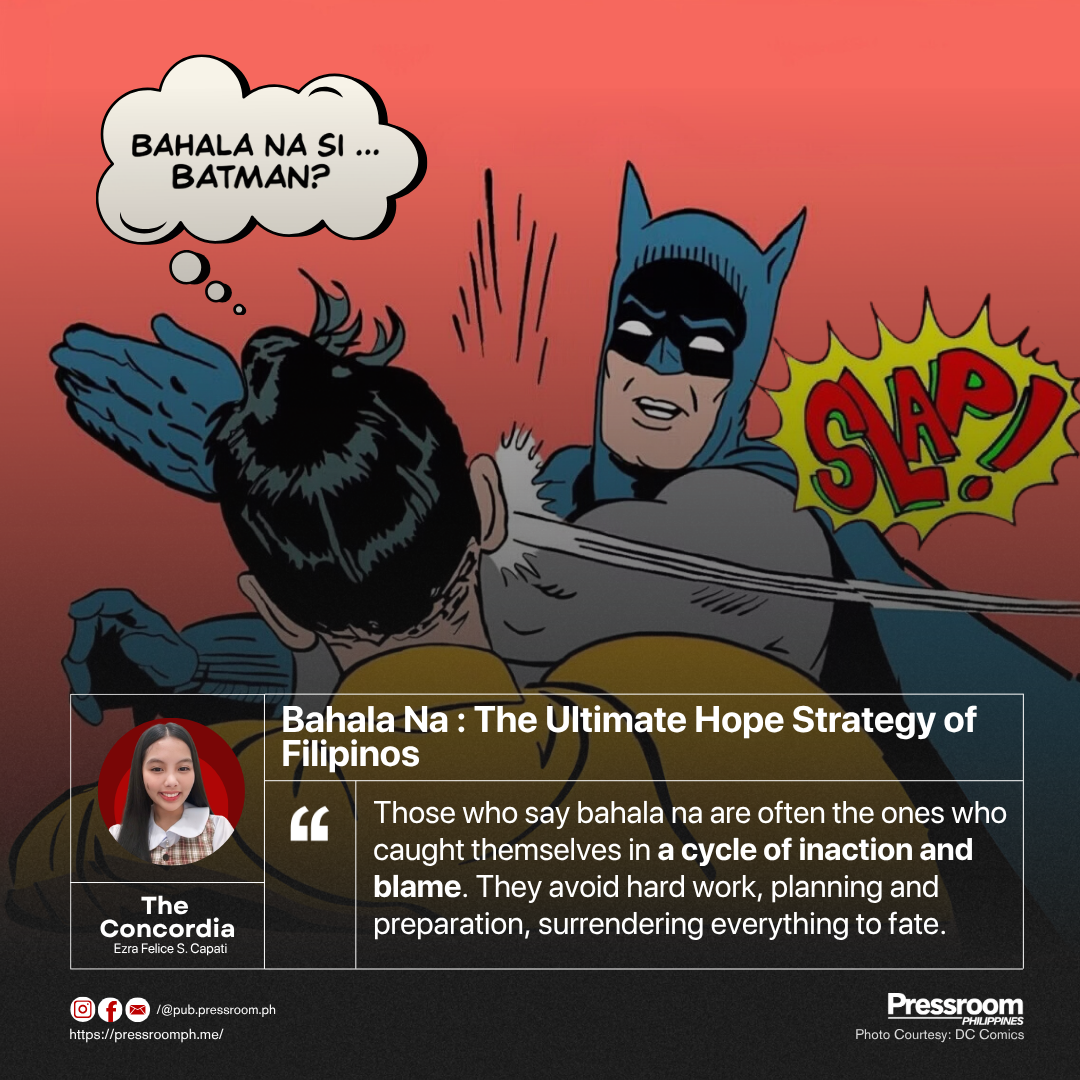
“Bahala na si Lord” “Bahala na si Batman” You’ve probably heard this phrase from a friend, classmate, or sometimes family.
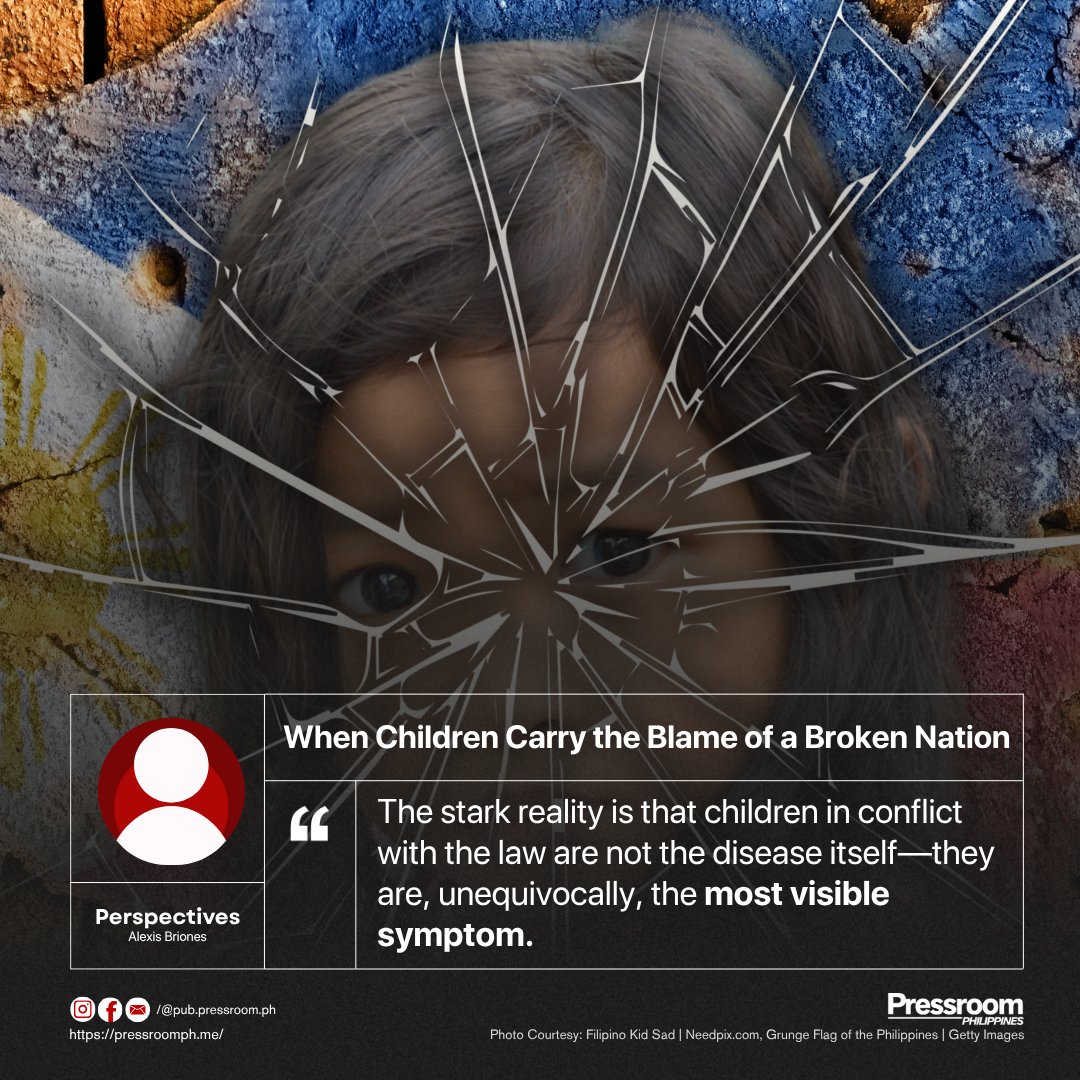
Why is it easier to arrest a child than to confront the systems that failed them?

Matagal ko nang hawak ang panulat. Matagal ko nang ipinaglalaban ang tinig ng mga estudyante, ang kwento ng mga nasa silid-aralan, ang hinaing ng mga hindi pinakikinggan.
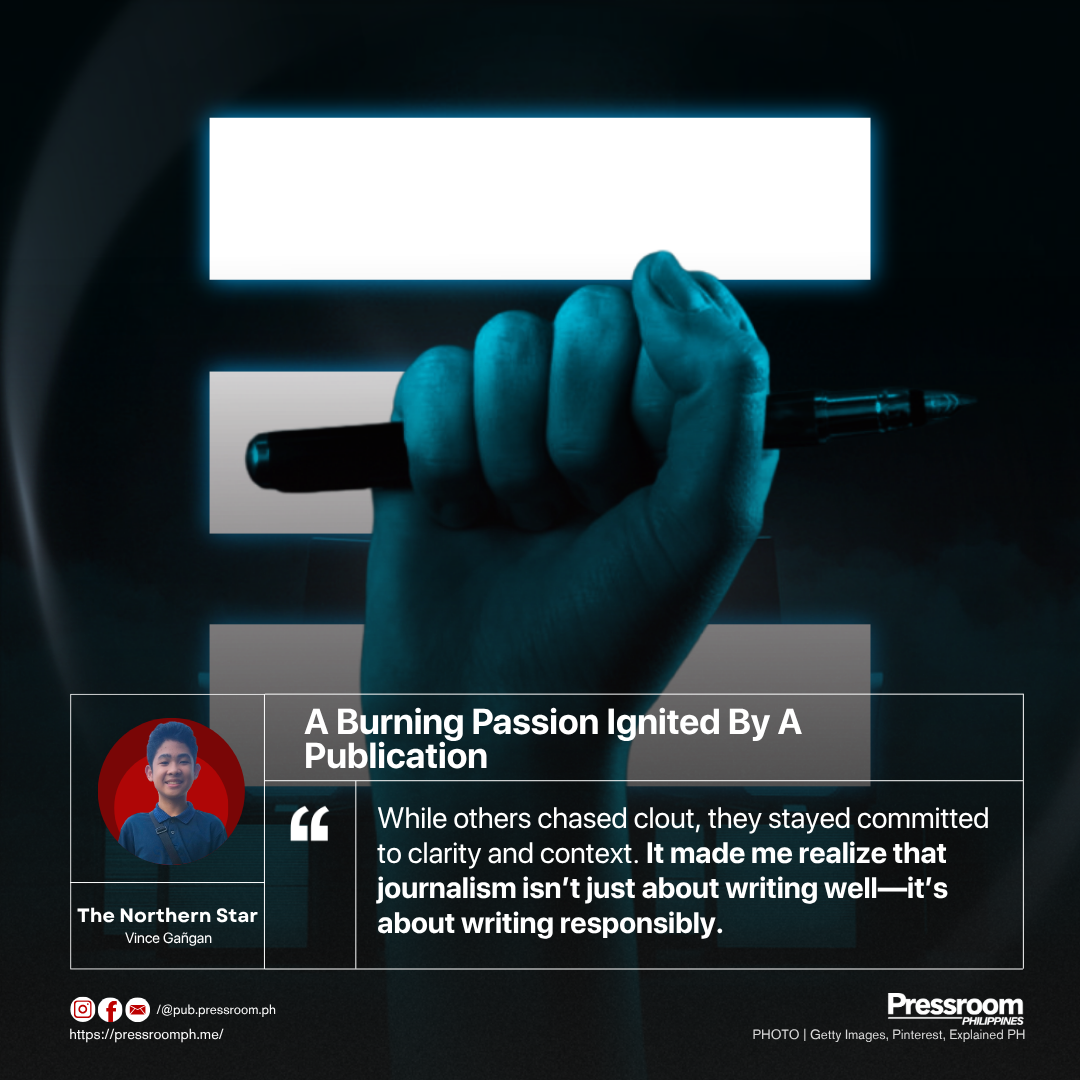
Starting out in the field of journalism made me feel like a rabbit going out to explore the world for the first time—scared, uncertain, but most of all, curiosity-driven. Explained PH was an online publication I used to read articles back in the day.
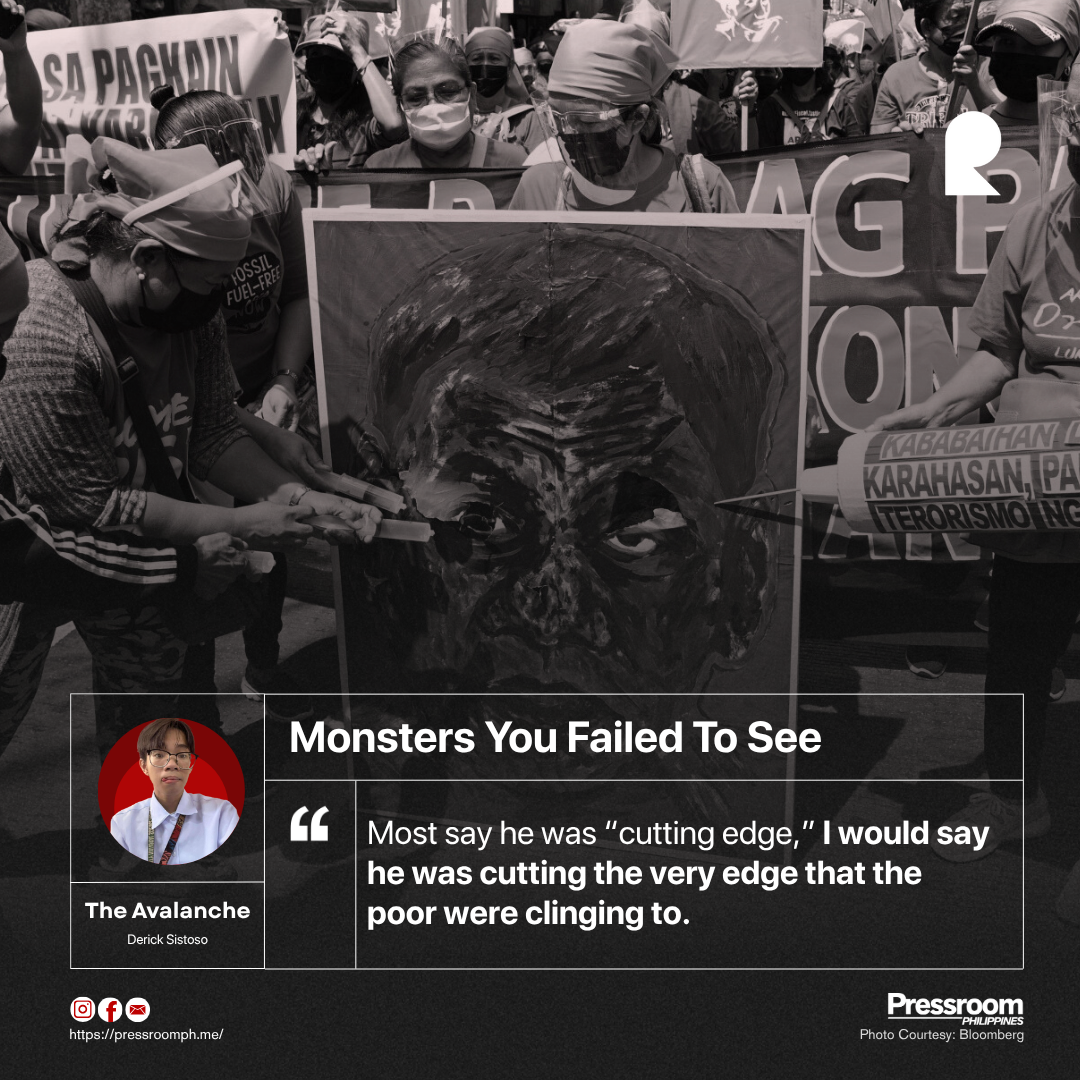
Do you believe that creatures who look, talk, and walk like us— but aren’t us at all— are real?
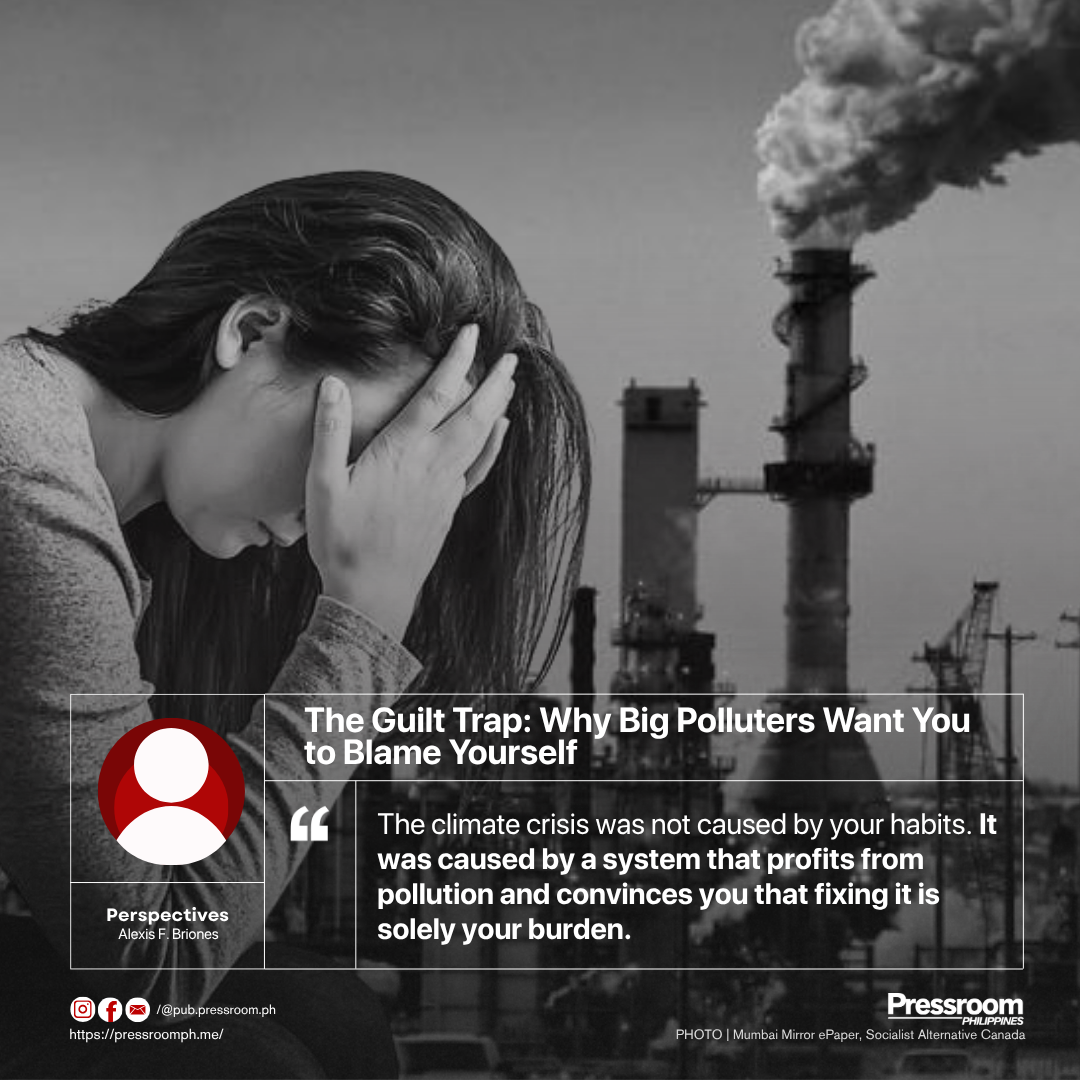
What if the biggest lie we’ve been sold about climate change is that it’s all our fault?
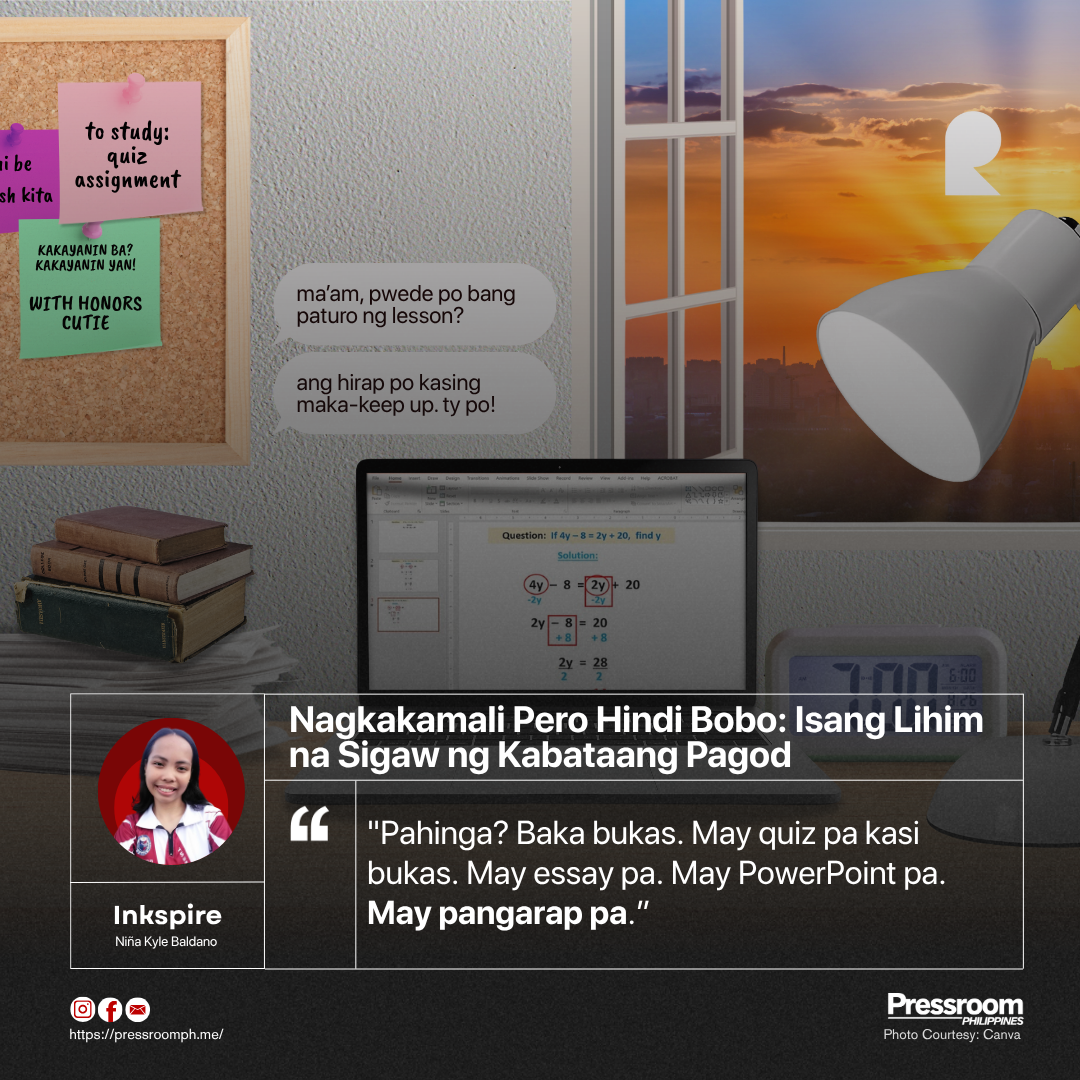
"Pahinga? Baka bukas. May quiz pa kasi bukas. May essay pa. May PowerPoint pa. May pangarap pa.”

“Friends with benefits,” “BFF premium,” “No label,” “Mixed signals,” and “Situationships.” You’ve probably heard these modern terms before. Buzzwords that echo like thunder through most modern Filipino teenage relationships—loud, confusing, and at times, dangerous. We toss these labels around like punchlines, masking confusion and emotional risk behind jokes and emojis.
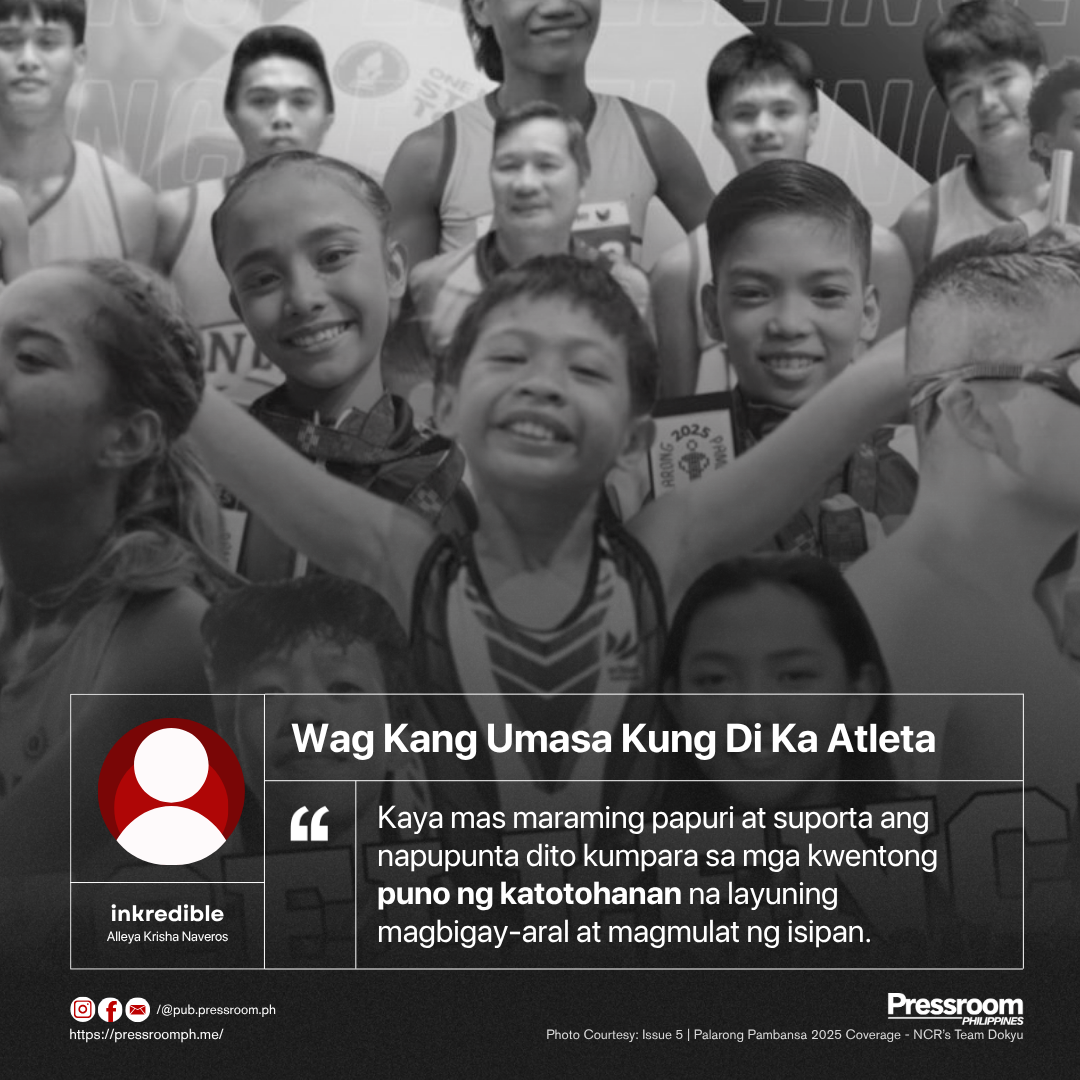
Sa bawat laro na ginaganap sa bansa, laging may mga mata na nagmamasid. Ngunit sa likod ng mga ito, maraming tinig ang tila nawawala at hindi naririnig.
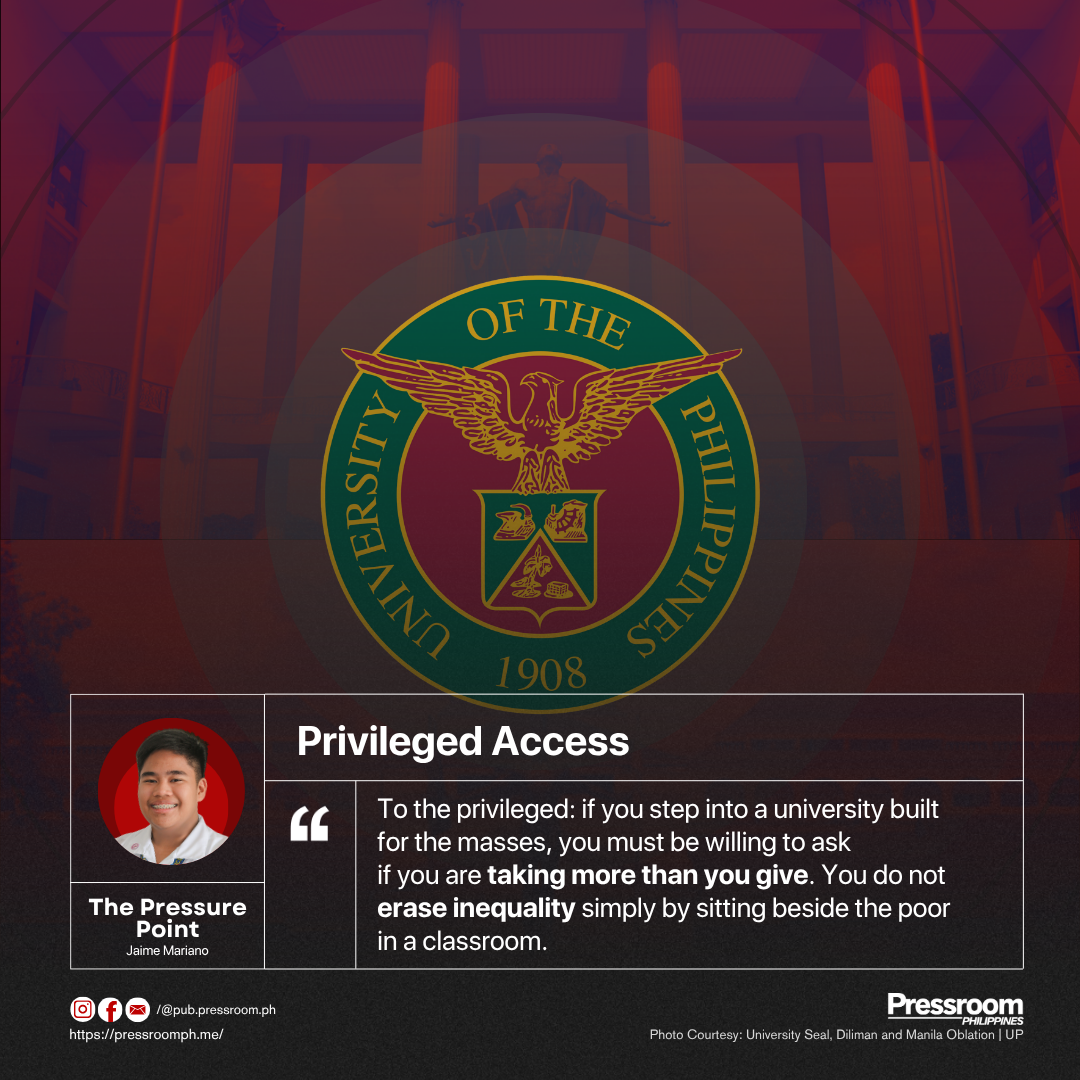
In the Filipino imagination, the University of the Philippines stands as a symbol of hope; a “promised land” where brilliance and grit can break through the walls of poverty. It is heralded as the great equalizer, where the child of a market vendor can sit beside the nation’s brightest minds, bound not by wealth but by merit.
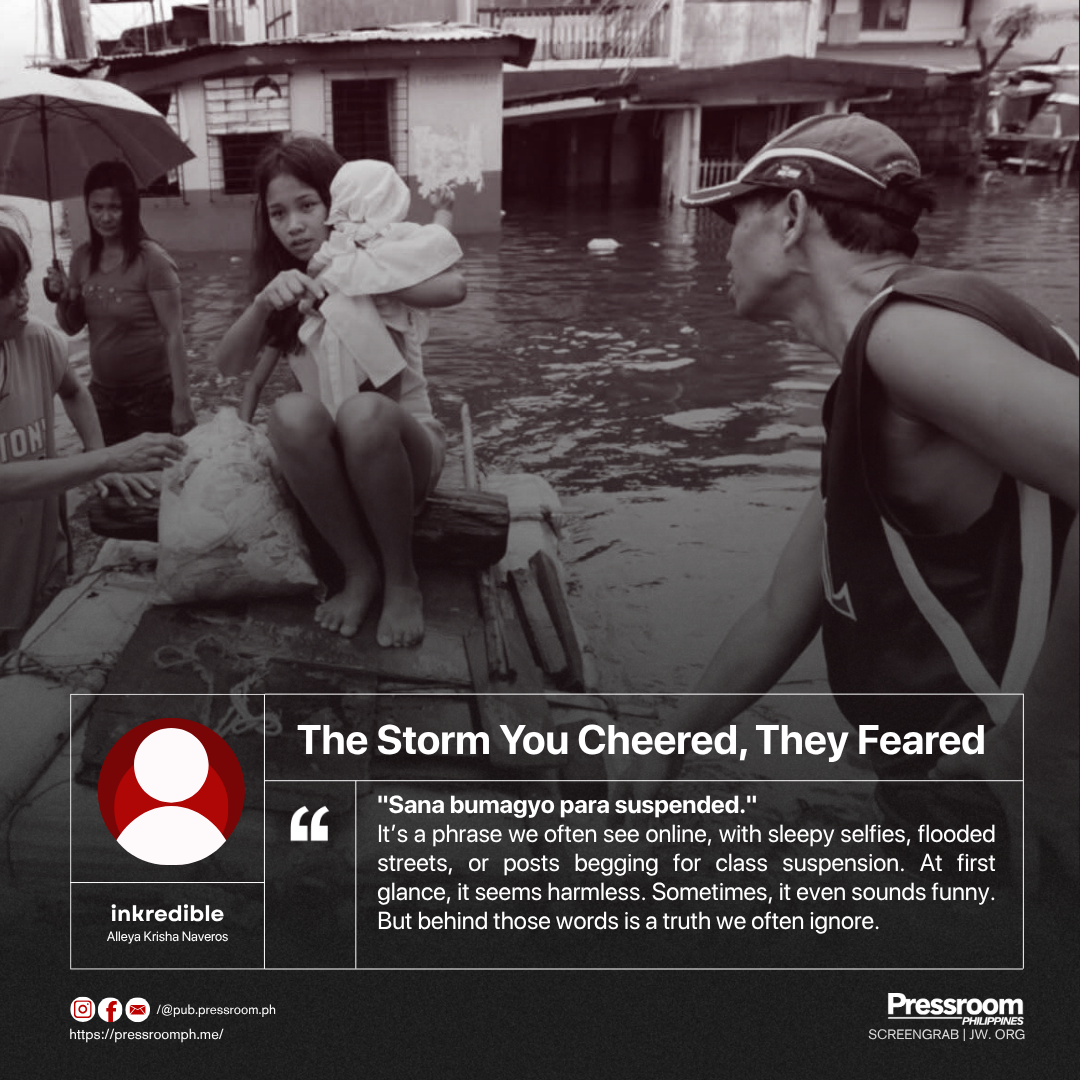
"Sana bumagyo para suspended." It’s a phrase we often see online, with sleepy selfies, flooded streets, or posts begging for class suspension. At first glance, it seems harmless. Sometimes, it even sounds funny. But behind those words is a truth we often ignore.
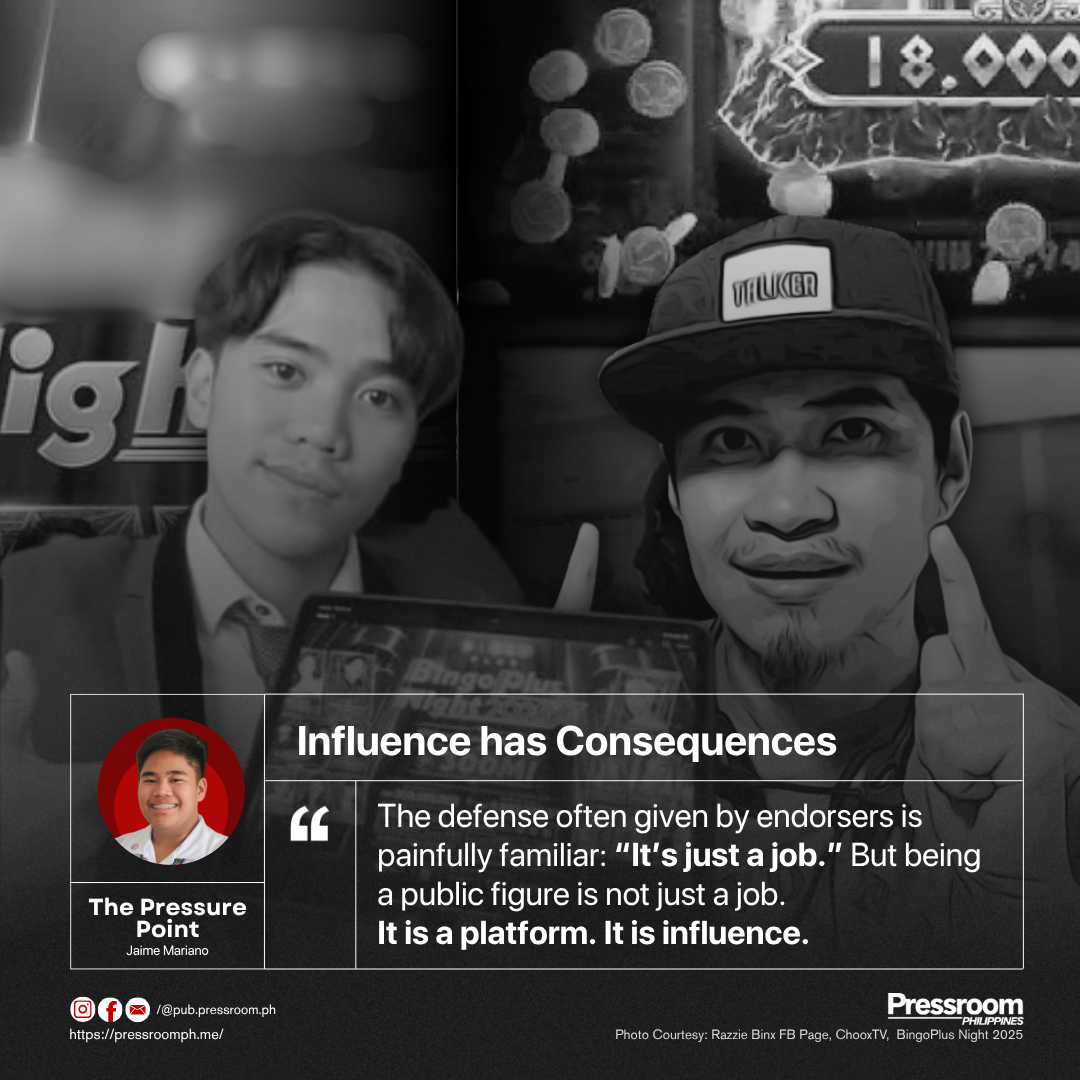
In a digital era where the divide between influence and responsibility is blurred, Filipino celebrities stand at a troubling crossroads. With the rise of online gambling, now just one click away, many familiar faces have lent their star power to a booming industry that thrives on high-risk behavior and vulnerable audiences.
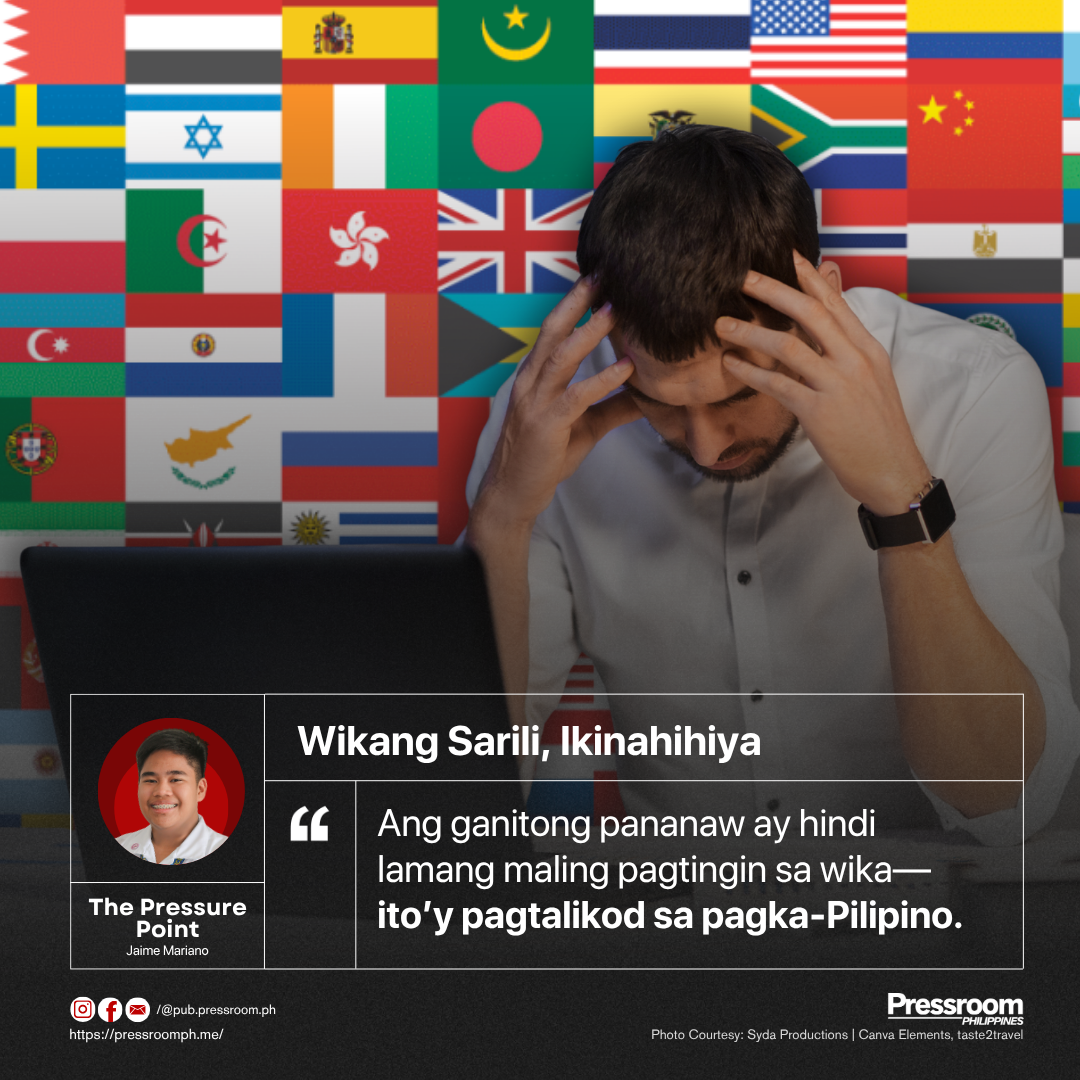
Ang Pilipinas ay tahanan ng tinatayang 182 hanggang 186 na buhay na wika, isa sa mga pinakamayamang multilingguwal na bansa sa buong mundo. Ngunit sa kabila ng yaman ng ating lingguwistikong pagkakakilanlan, ang Ingles ang nananatiling hari—ang tanging wika na kinikilalang may bisa sa edukasyon, negosyo, at maging sa pagkatao ng isang tao.
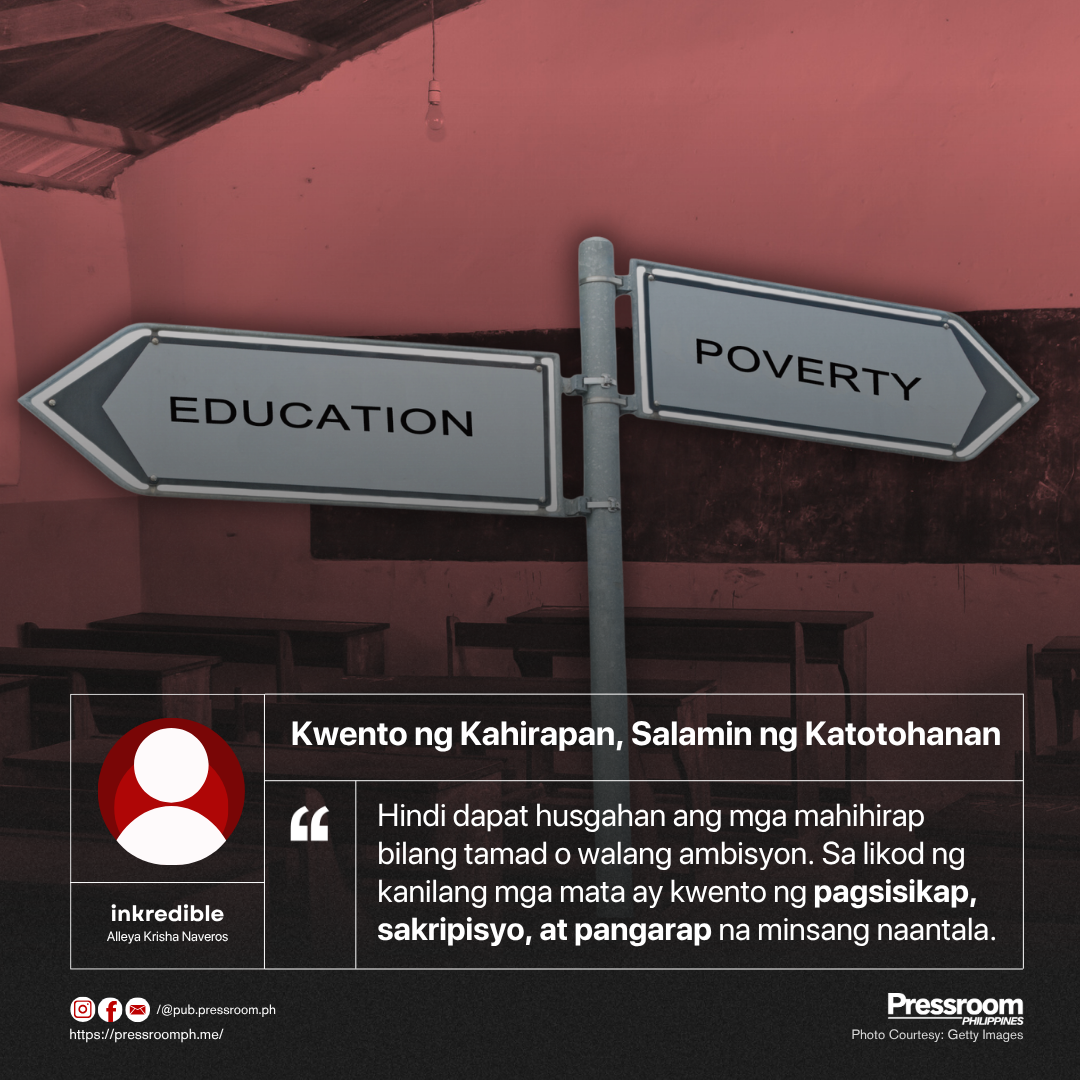
Kahirapan ay isang matagal nang suliranin na hindi basta-basta nawawala. Sa bawat araw, maraming Pilipino ang nagsusumikap na makaraos, pero tila ba palaging may hadlang na pumipigil sa kanilang pag-angat. Ang buhay na puno ng hirap ay hindi simpleng kwento lang; ito ay salamin ng katotohanan sa lipunang ating ginagalawan.
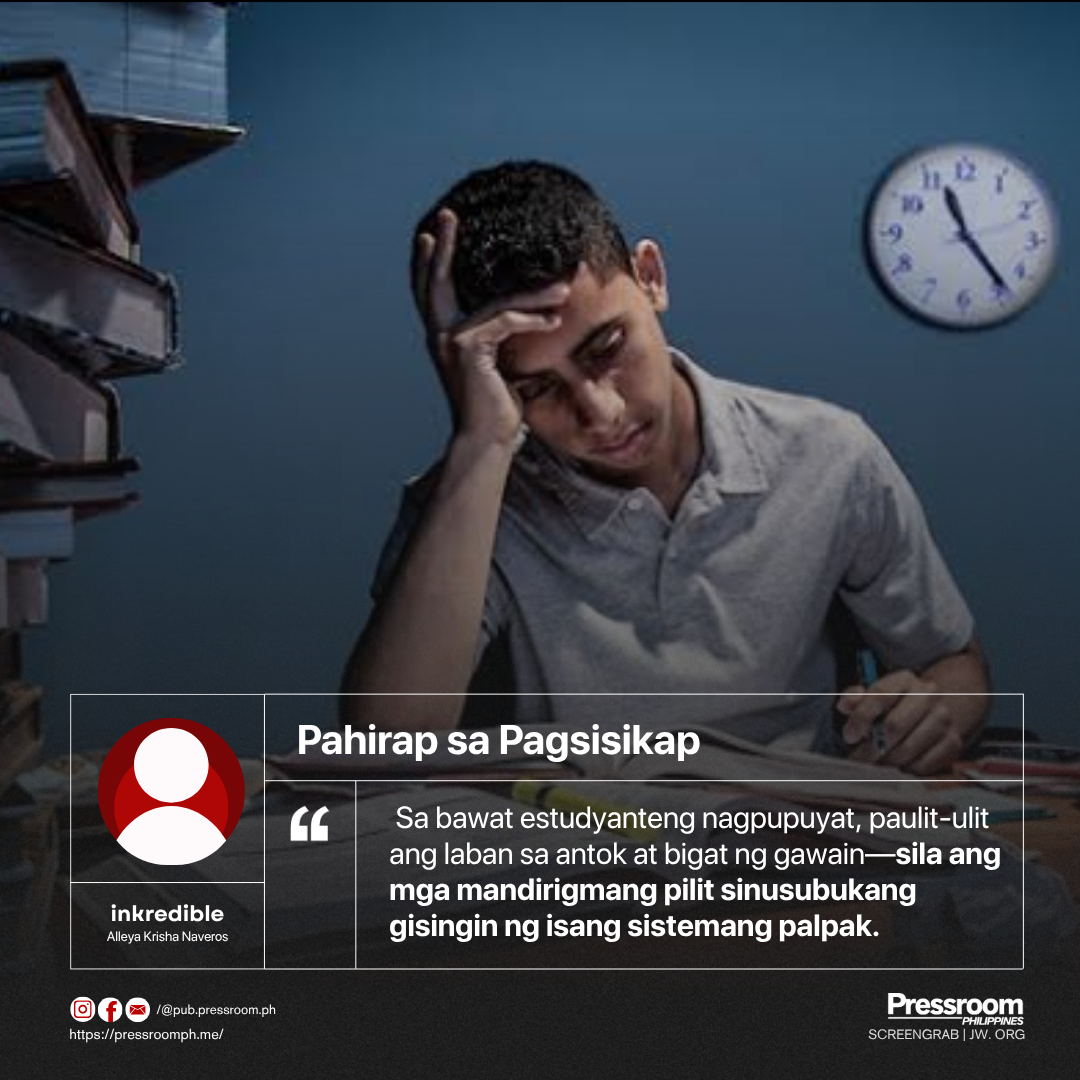
Kahit gising ang mata, kung utak ay pagod na, walang saysay ang bawat sandali sa loob ng silid-aralan. Sa bawat estudyanteng nagpupuyat, paulit-ulit ang laban sa antok at bigat ng gawain—sila ang mga mandirigmang pilit sinusubukang gisingin ng isang sistemang palpak. Hindi man sila ang may gawa ng pahirap, sila ang nagdaranas ng bunga nito sa bawat araw ng kanilang pagsisikap.
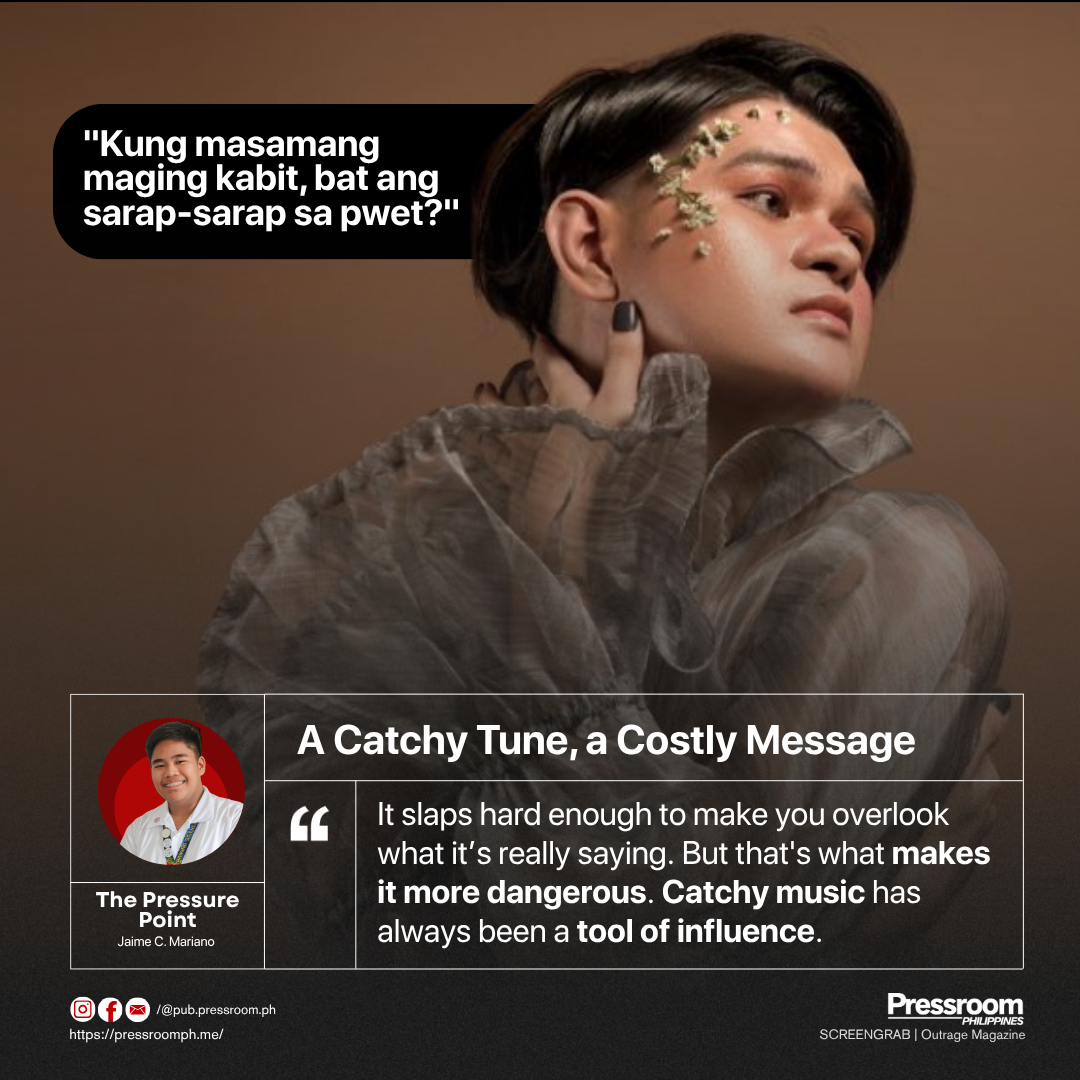
"Kung masamang maging kabit, bat ang sarap-sarap sa pwet?" Those were the lyrics that rang through the air at the Pride March, performed by Filipino artist Dom Guyot.
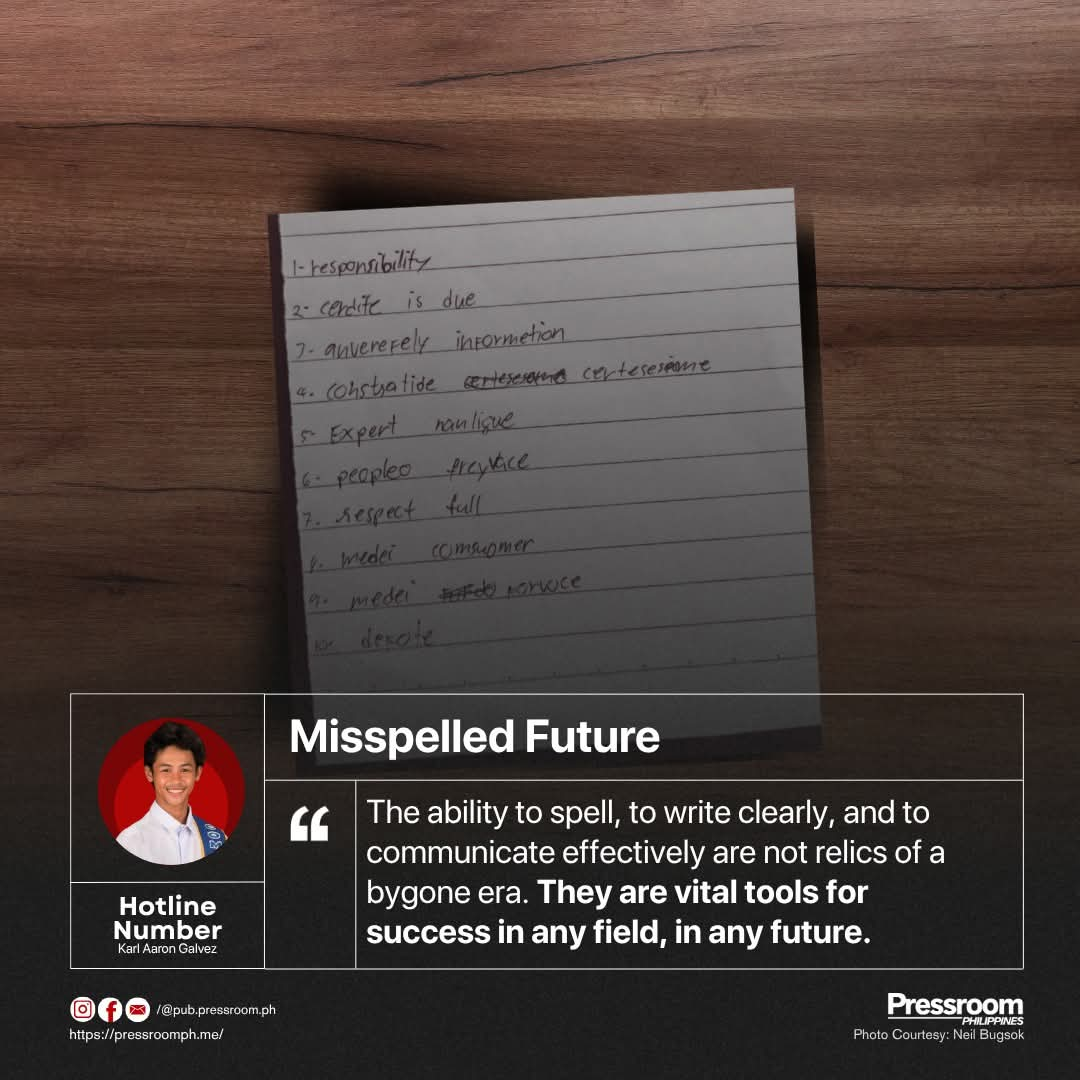
When senior high school students struggle with basic spelling, it's not just a red mark on a quiz paper; it's a flashing red light signaling a deeper challenge to our educational future.
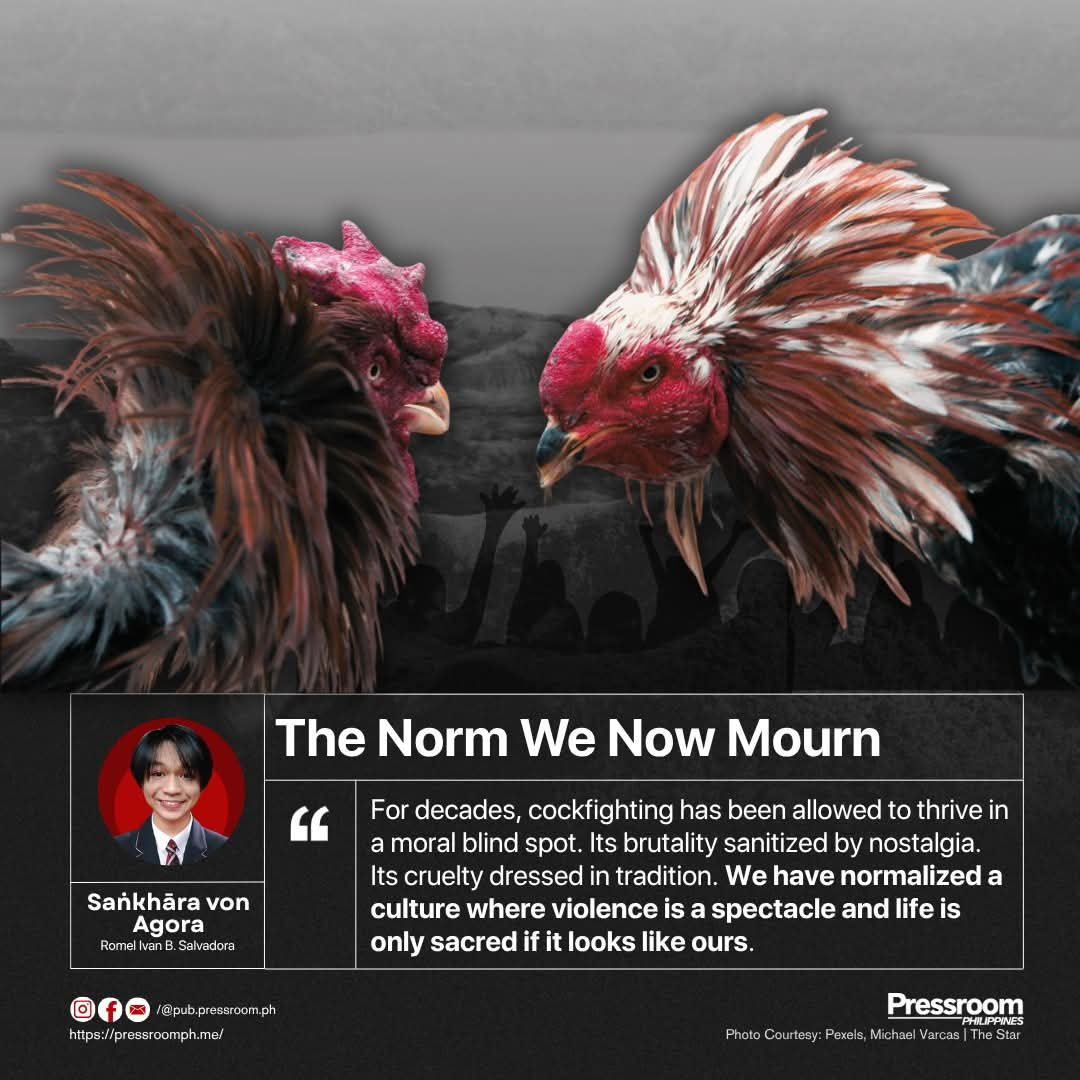
In the pit, a rooster falls. Bloodied, broken, to the sound of cheers. And no one mourns. The feathers settle. The betting slips exchange hands. The losing rooster is thrown out as it was ever only worth its strength.
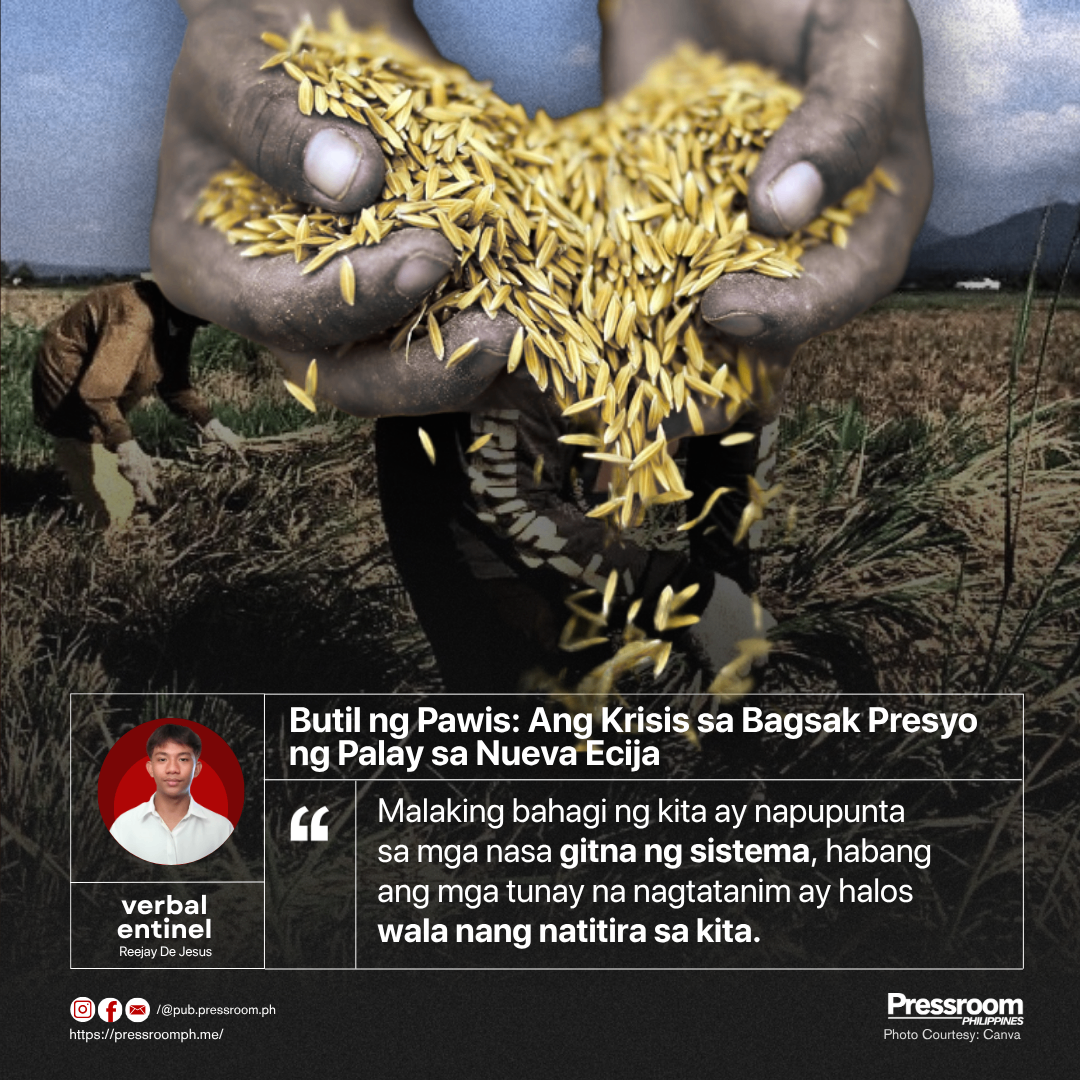
Sa bawat butil ng palay na inaani sa Nueva Ecija, nakaukit ang pawis at sakripisyo ng libo-libong magsasaka. Sa lalawigang tinaguriang "Rice Granary of the Philippines," tila isang kalokohan na ang mismong nagtatanim ng bigas ay siyang naghihirap na mabuhay.
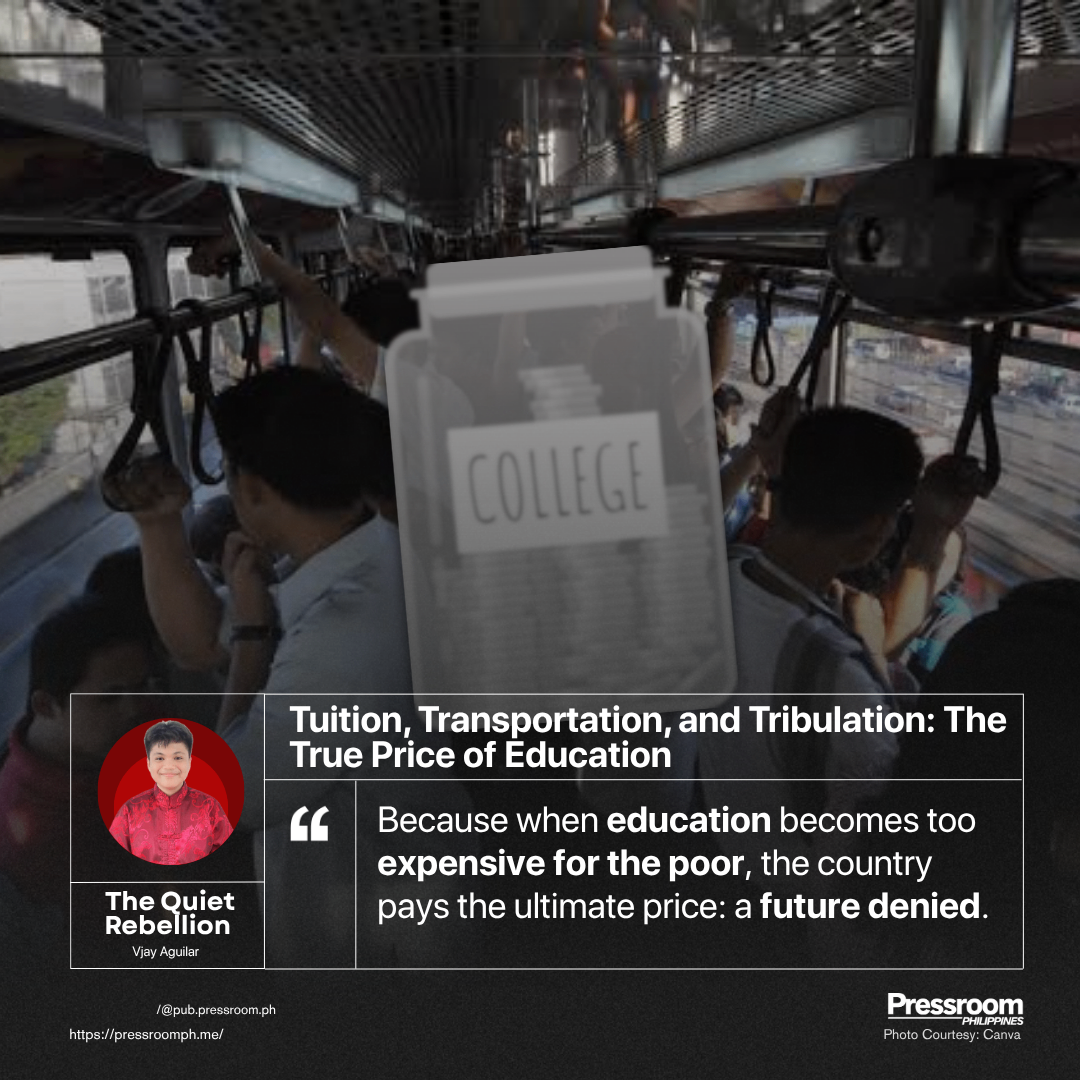
In the Philippines, the dream of earning a diploma has always been seen as the key to a better future. For many Filipino families, education is not just a right but a prized investment, often pursued at any cost.
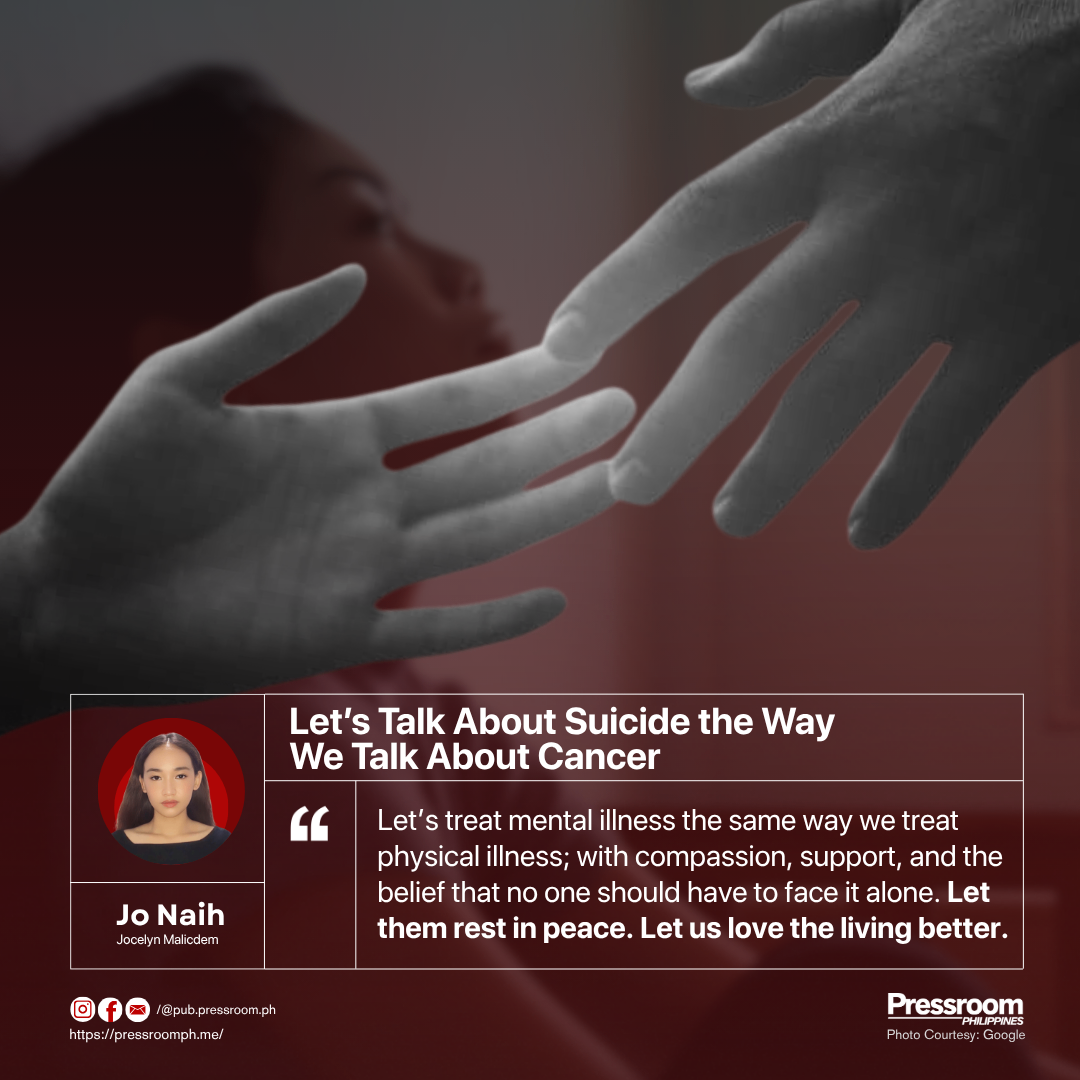
When someone dies of cancer, we don’t blame them. We don’t say they gave up or that they should’ve tried harder. We say they fought a hard battle. We say their illness took them. We comfort their families. We offer flowers, prayers, and silence.
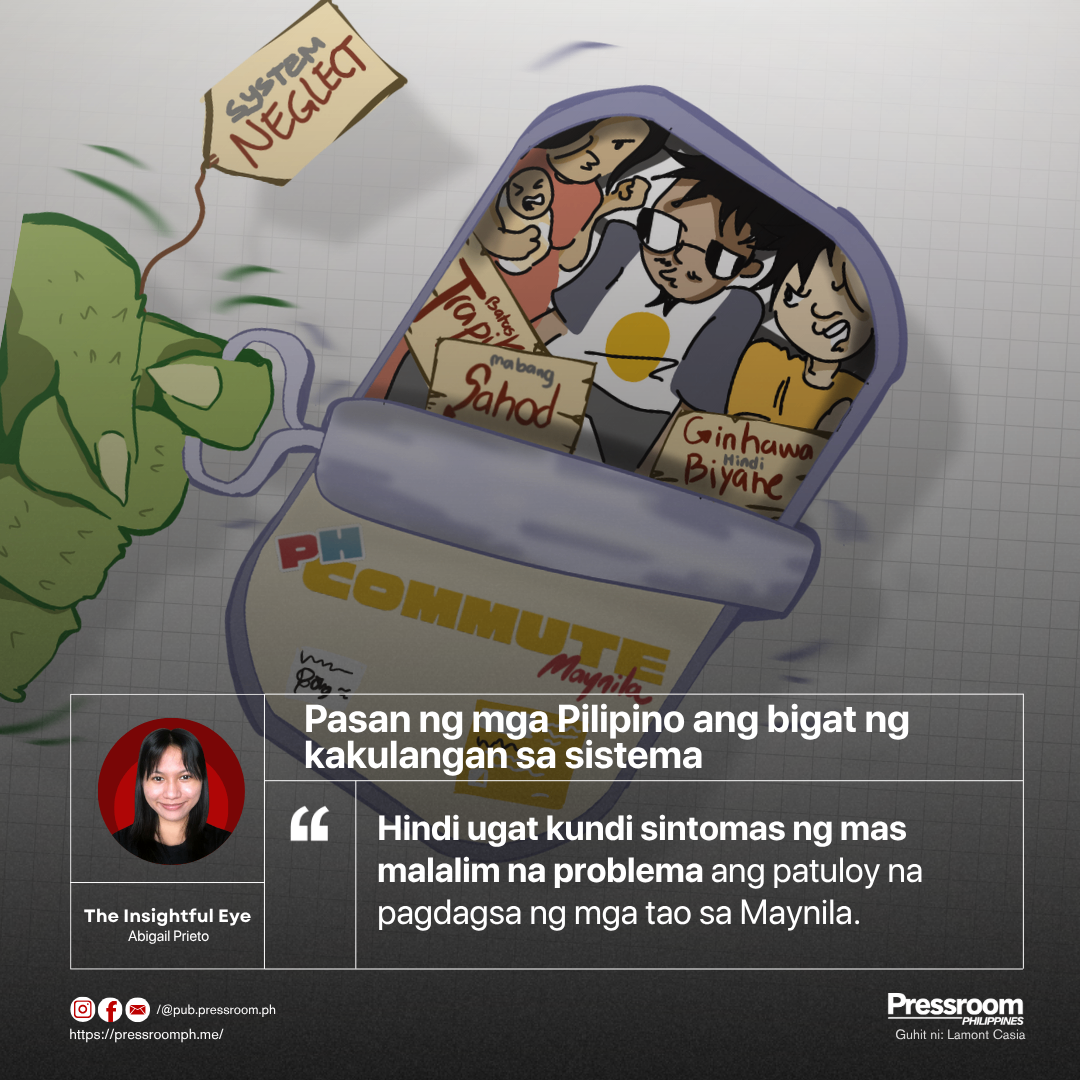
Araw ng Lunes. Maulan pero tuloy pa rin ang mga pasok–sa paaralan at trabaho. Kahit maaga akong gumayak at umalis ng bahay para hindi malate sa klase ay bumungad pa rin sakin ang punong terminal ng bus patungong Manila.
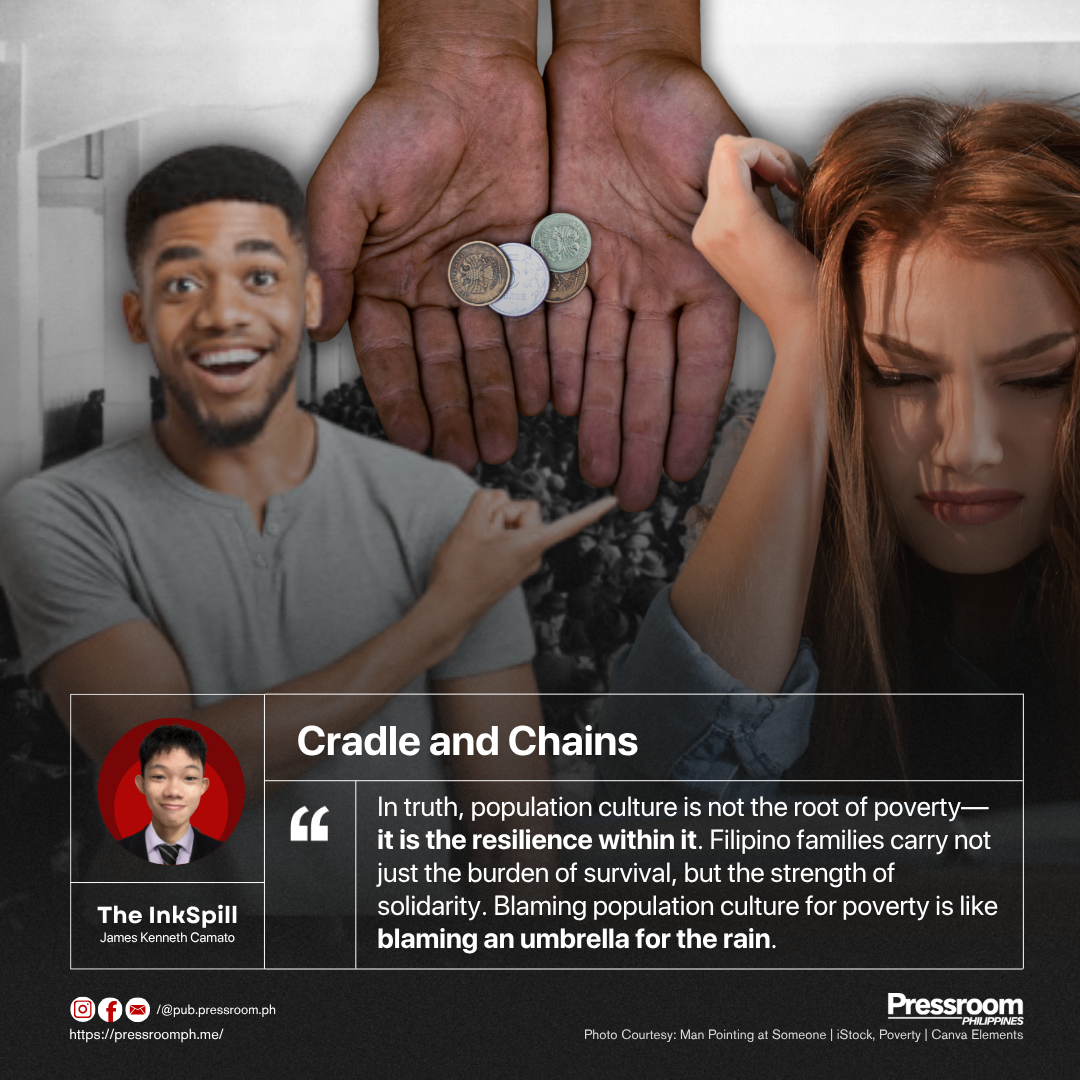
It's a phrase with a heavy implication: the population culture has become the burden-bearer of the poor. A whispered blame, a pointed finger. By sheer numbers, the humanity of Filipino people carry the cross of poverty on their backs, and culture is the culprit. It is a mistaken option as much for a nation. But, is it fair to blame culture for a nation‘s poverty? Or have we once taken the mistaken symptom for a source?
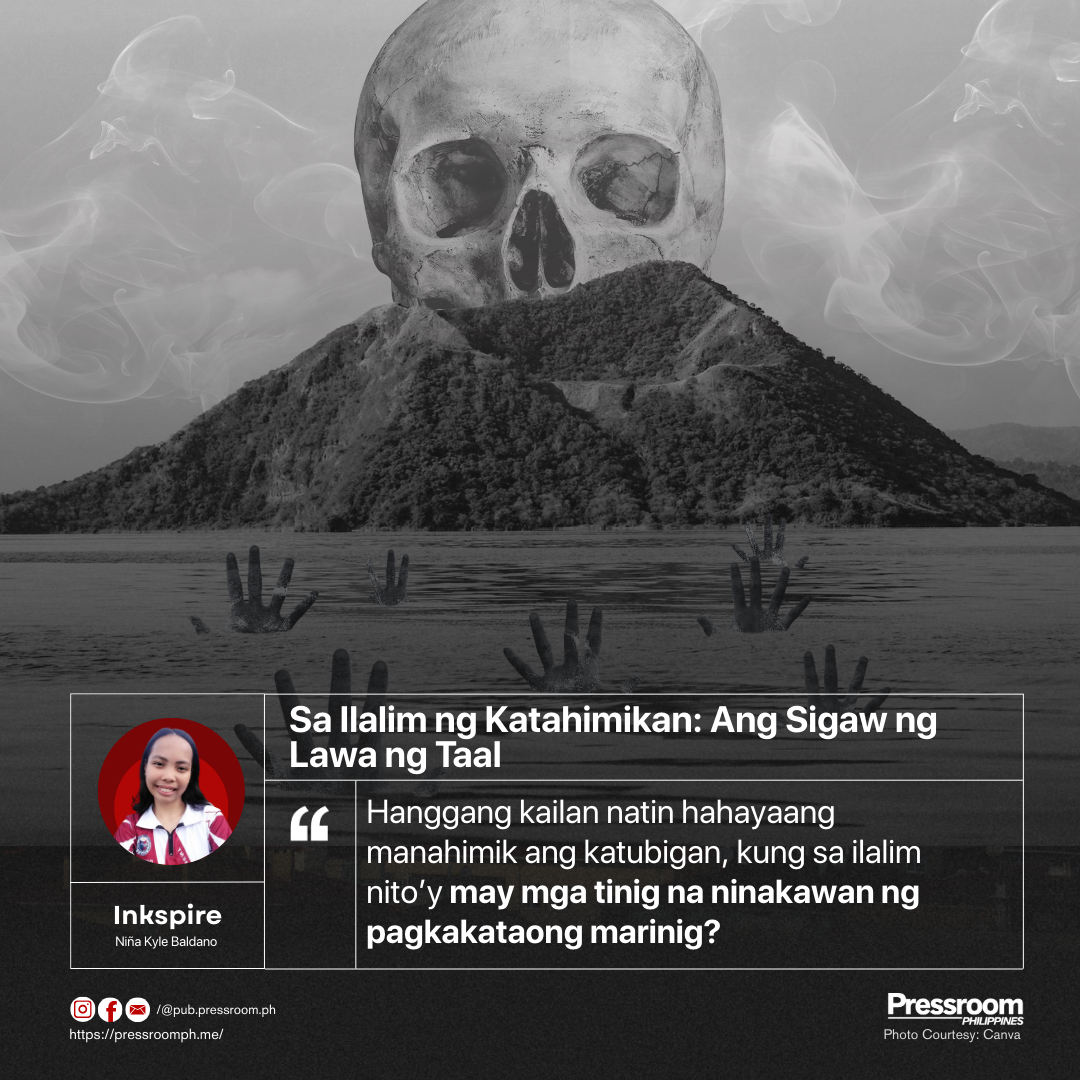
This article reflects on the grim discovery of sacks retrieved from Taal Lake, stirring questions of justice and accountability. Is the truth beneath the surface? The article urges the youth to seek answers and demand action.
.png)
There is a sound that never leaves the cockpit.
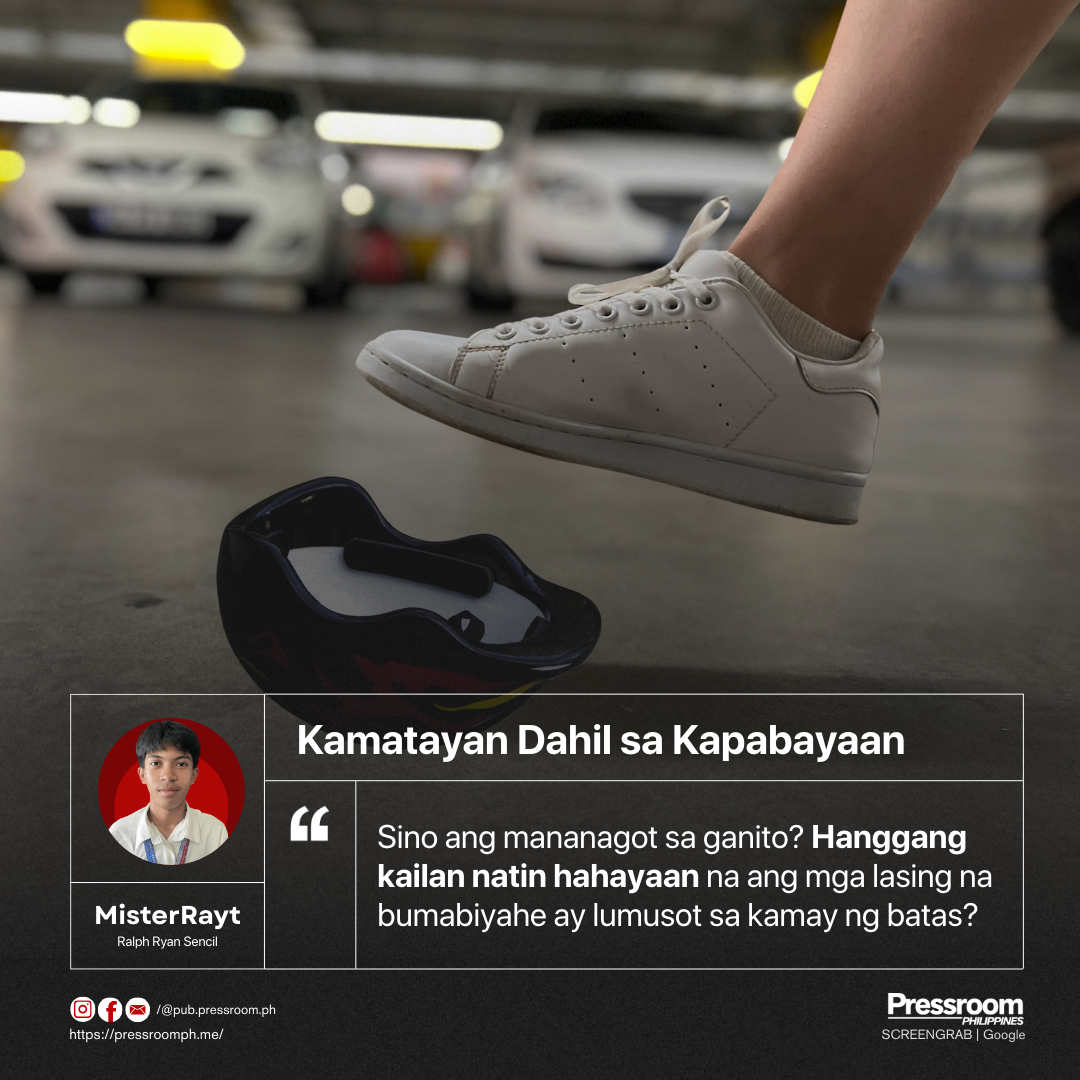
A mother's death in Moalboal, Cebu, highlights issues of drunk driving, road negligence, and a failing healthcare system. The victim of a drunk driver on poorly maintained roads, she faced delays in critical care. Is this a wake-up call for justice and systemic change?
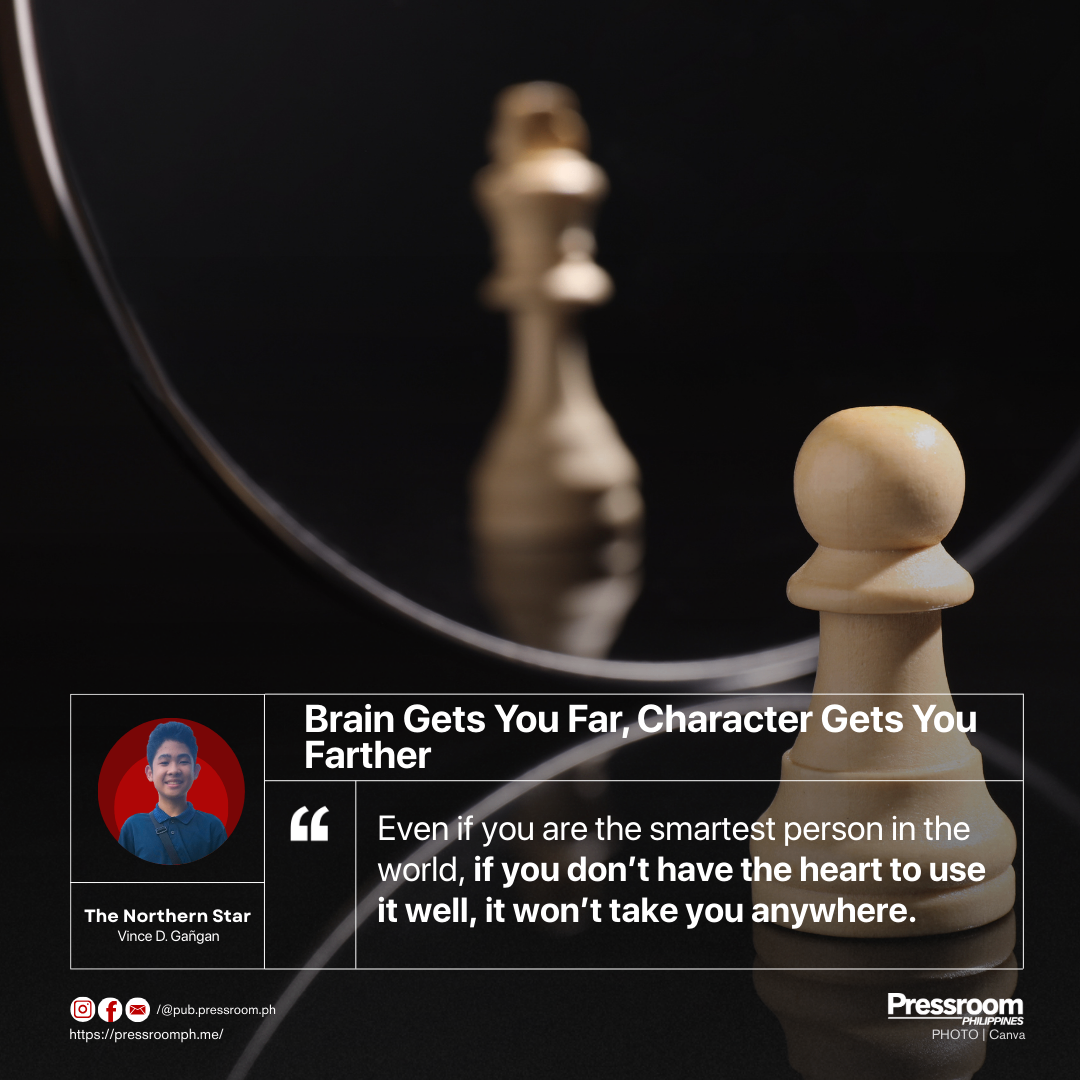
Is intellect or character more important? While intelligence is often prized, the author argues that strong character traits like kindness and integrity ultimately outweigh intellect in determining a person's true value and impact. Read why character is a solid foundation, while intellect is just lavish furniture.
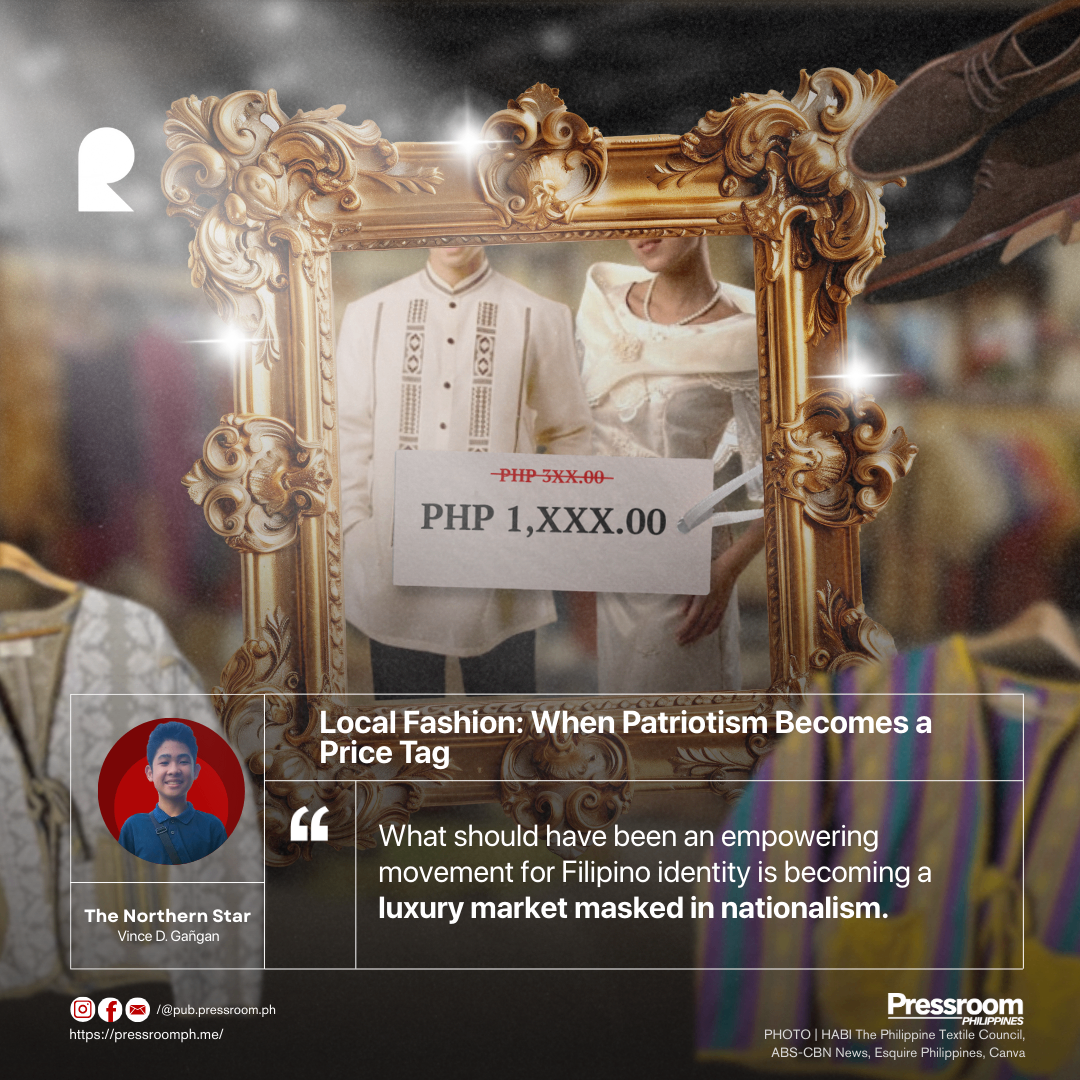
Local Filipino fashion brands tout national pride, but high prices raise questions. Are these brands truly for all Filipinos, or are they targeting a select few? The rising cost of 'patriotism' in fashion sparks debate about accessibility vs. exclusivity.
.png)
Anger isn’t always sudden. For some, it lives in the silence before a disagreement—the tightness in the chest when things don’t go right. It’s not a roar; it’s a hum. Somehow, the feeling of anger found them early and it stayed. It clings like a second skin, showing up in friendships, in relationships, and even in moments too small to deserve outbursts.

Women are strong human beings. They bring life into this world — but they shouldn’t be treated as if their only purpose is to deliver a baby, or in other words, as mere baby machines.

There are pure souls who would grab every opportunity to rise from the hardships that they have to go through with their family. Meanwhile, they are forced to accept the fact that not every opportunity is for them. The reason is none other than the competition—the competition that the elites started. What is sad about it is that the poor and innocent cannot even stand a chance.
.png)
They say education is a right—one that should be guaranteed to all. But in this country, the word “right” increasingly feels conditional.

During a recent Independence Day gathering in Malaysia, Senator Robin Padilla boldly declared his support for a 2028 presidential tandem between Vice President Sara Duterte and Senator Imee Marcos. He even volunteered to be their campaign manager, casting aside any pretense of neutrality or issue-based politics. In a moment intended to promote unity and reflection on Philippine freedom, Padilla chose instead to push a recycled alliance rooted in political legacy, not public service.

I was the one they called when things fell apart, when their hands were shaking and their voice cracked from crying. I never asked why. I just came. I sat with them through their worst. I let them fall apart in front of me without ever making them feel like a burden. I held their stories. I wiped their tears. I reminded them they were still worthy, even at their lowest.

Breakups are never easy. But ending a relationship after five years is a whole different kind of pain. I’ve seen this happen to my best friend, who just ended things with her boyfriend of half a decade. What she’s feeling isn’t just sadness — it feels more like loss.